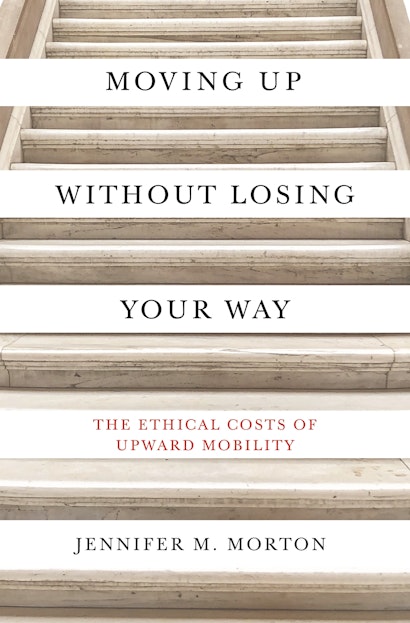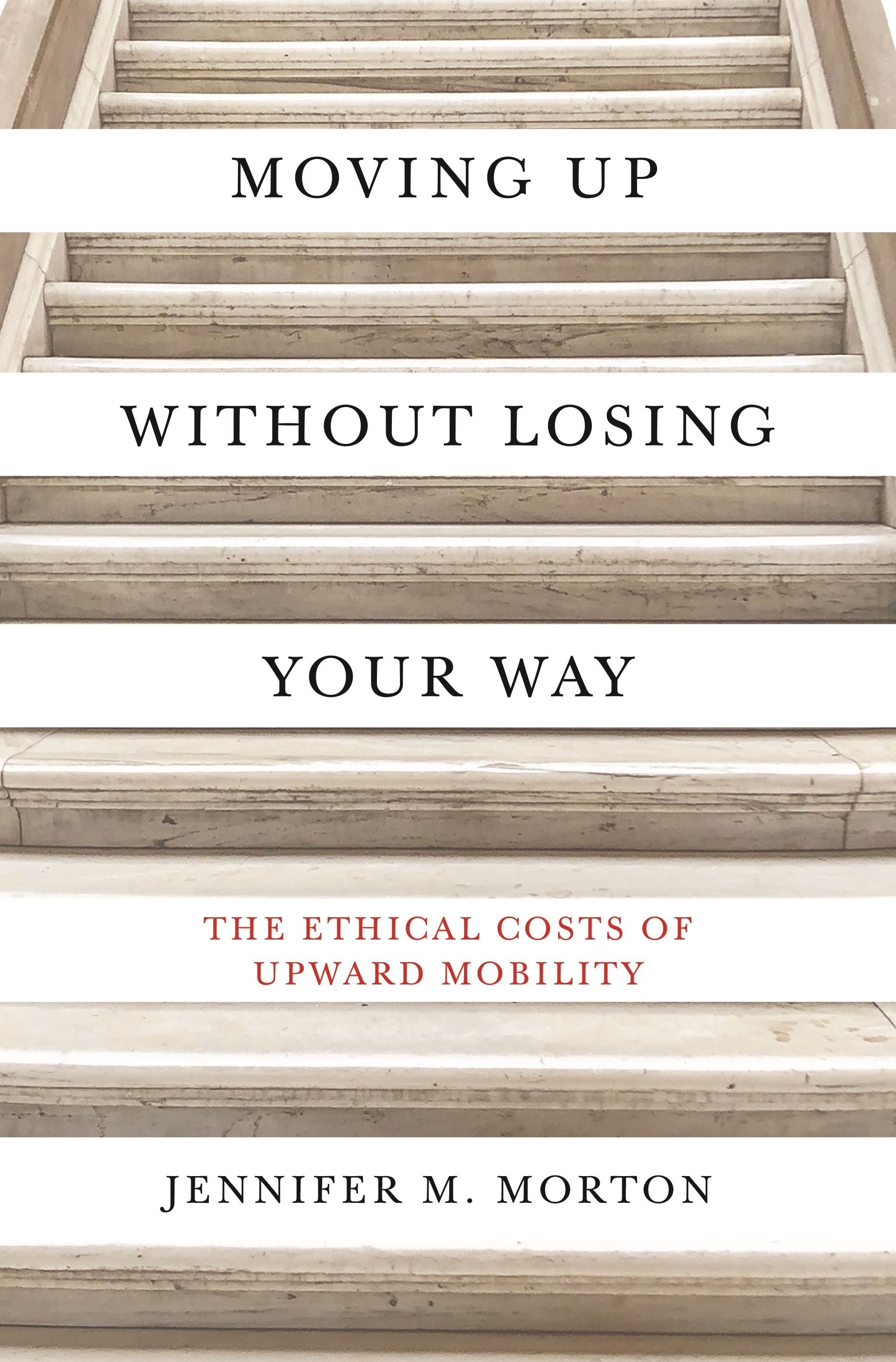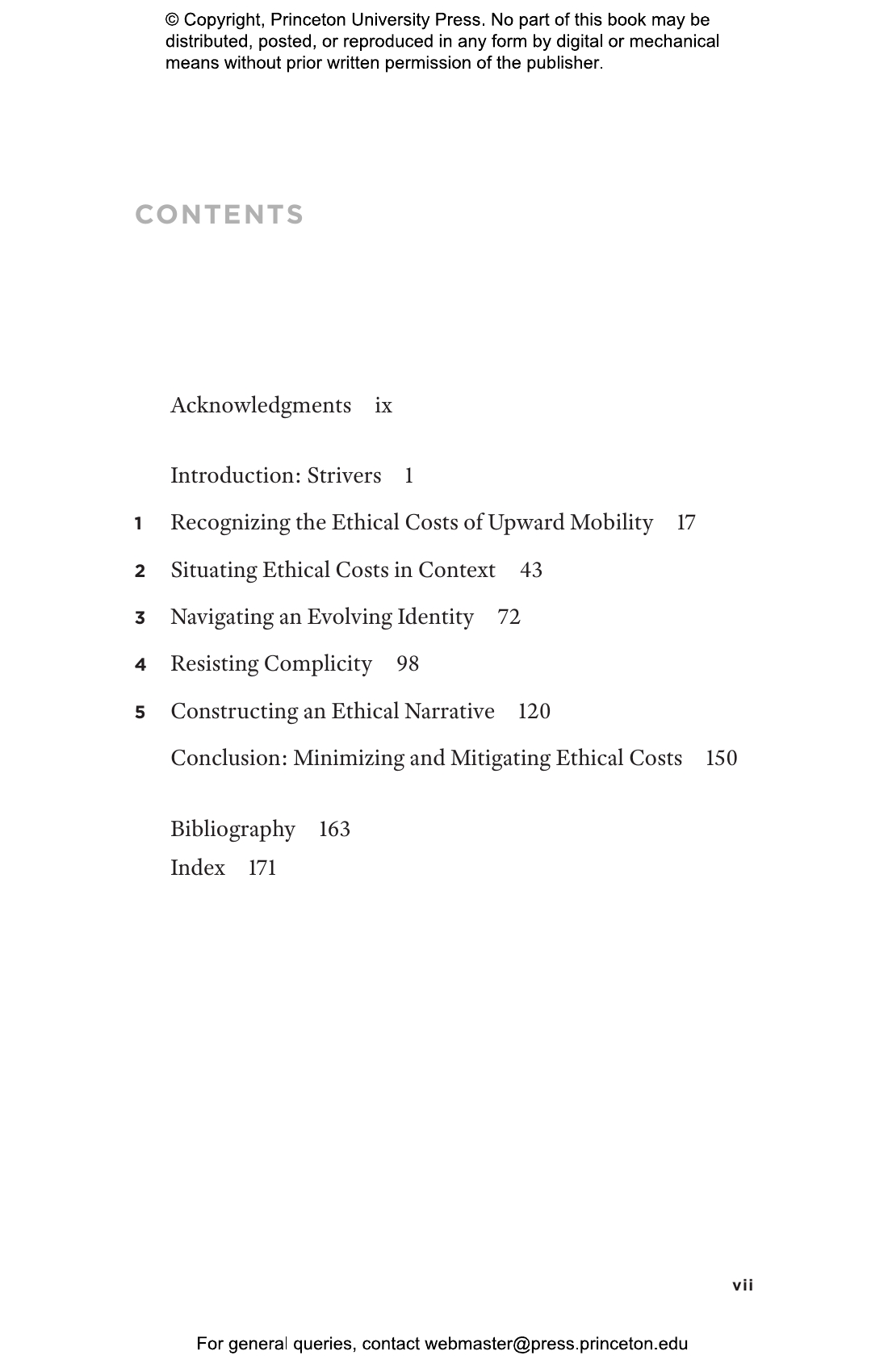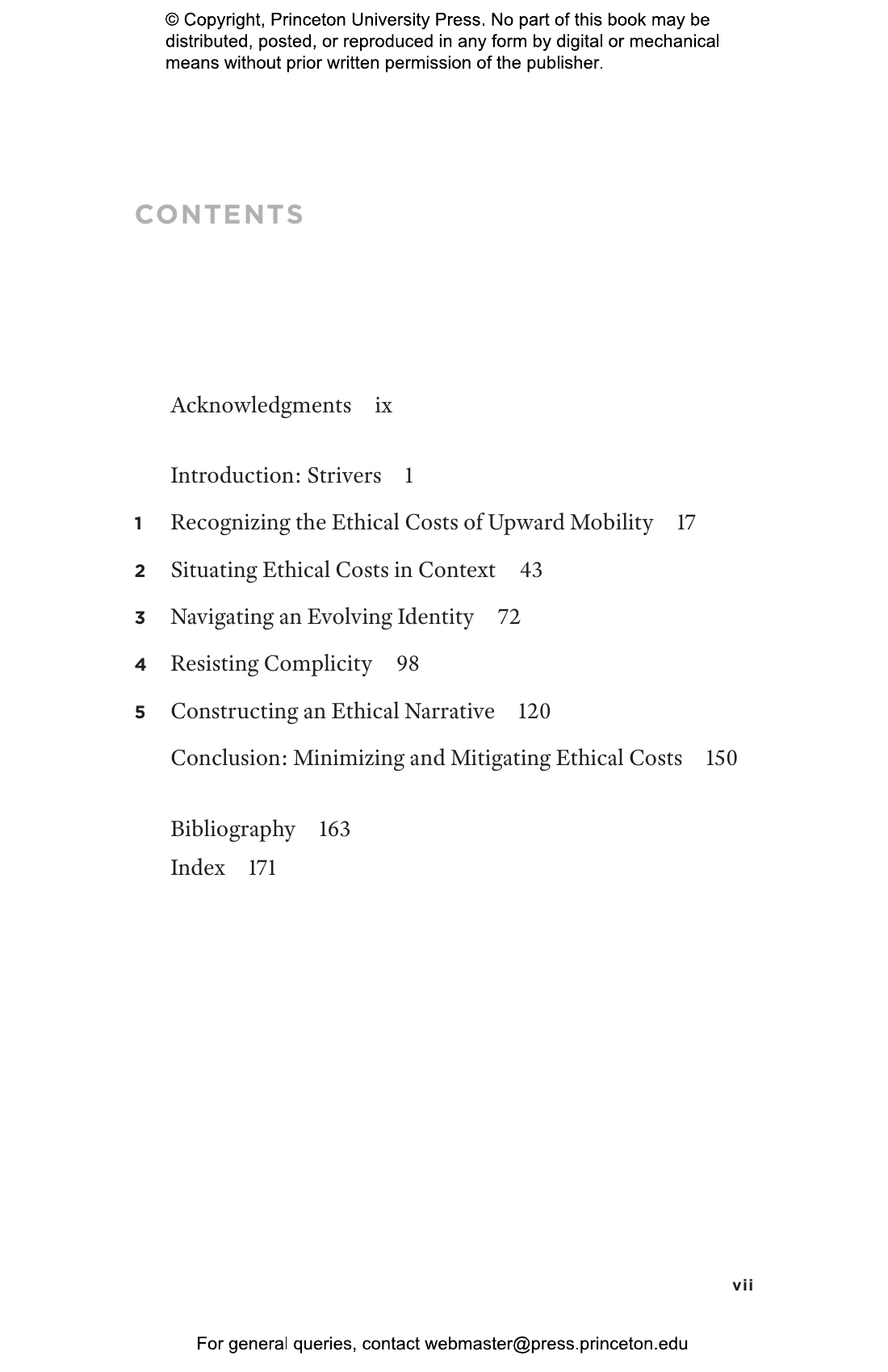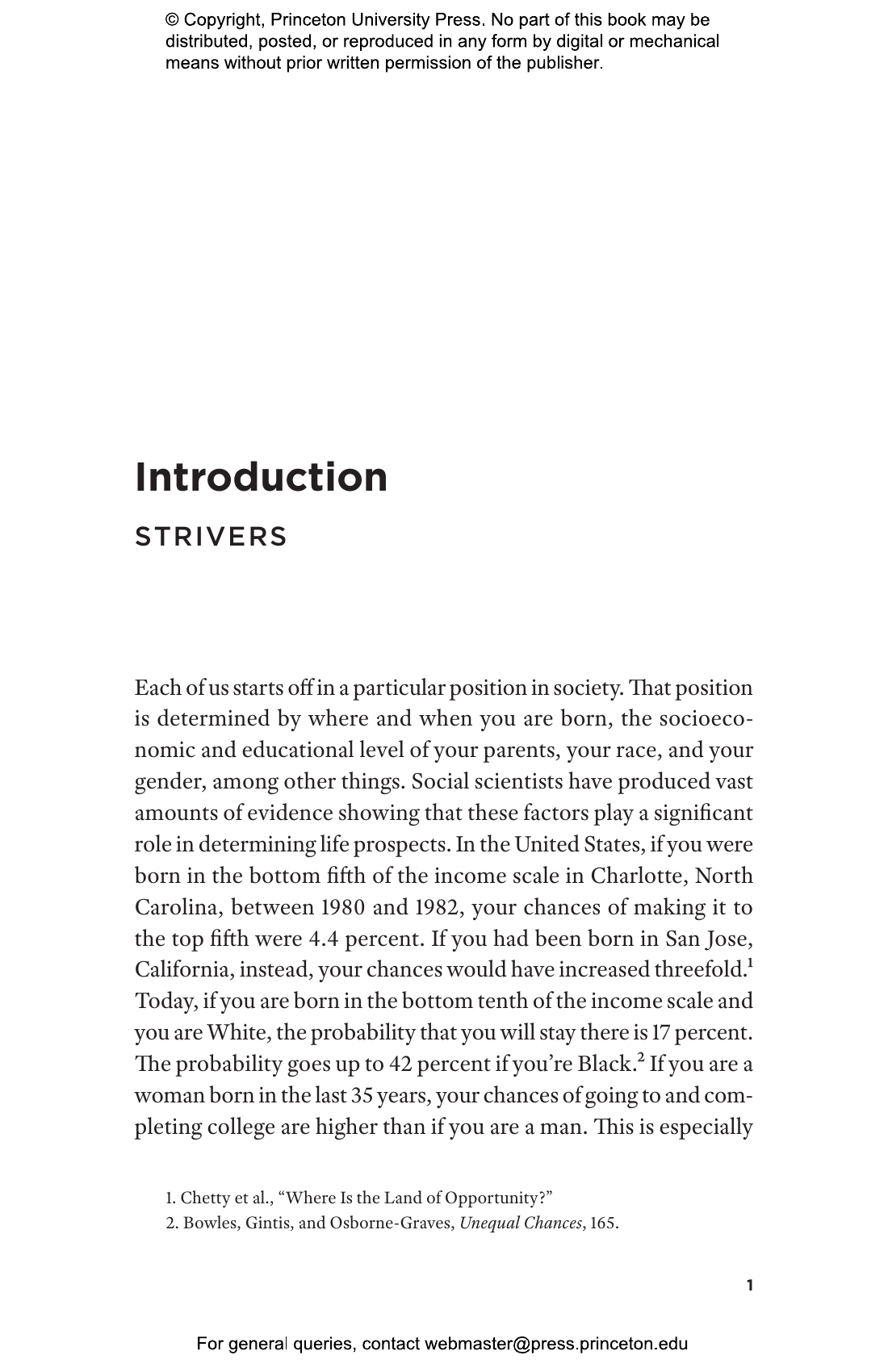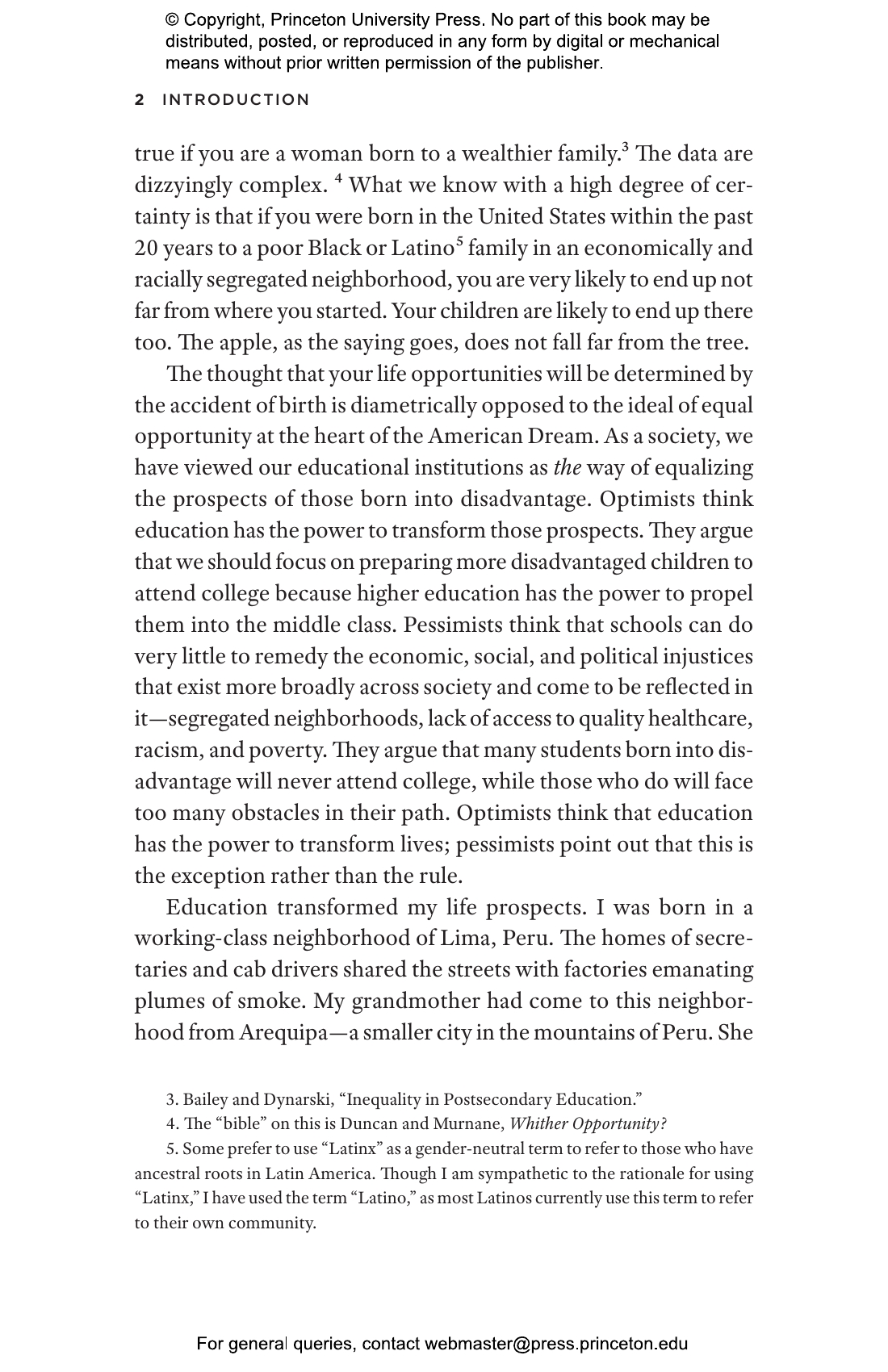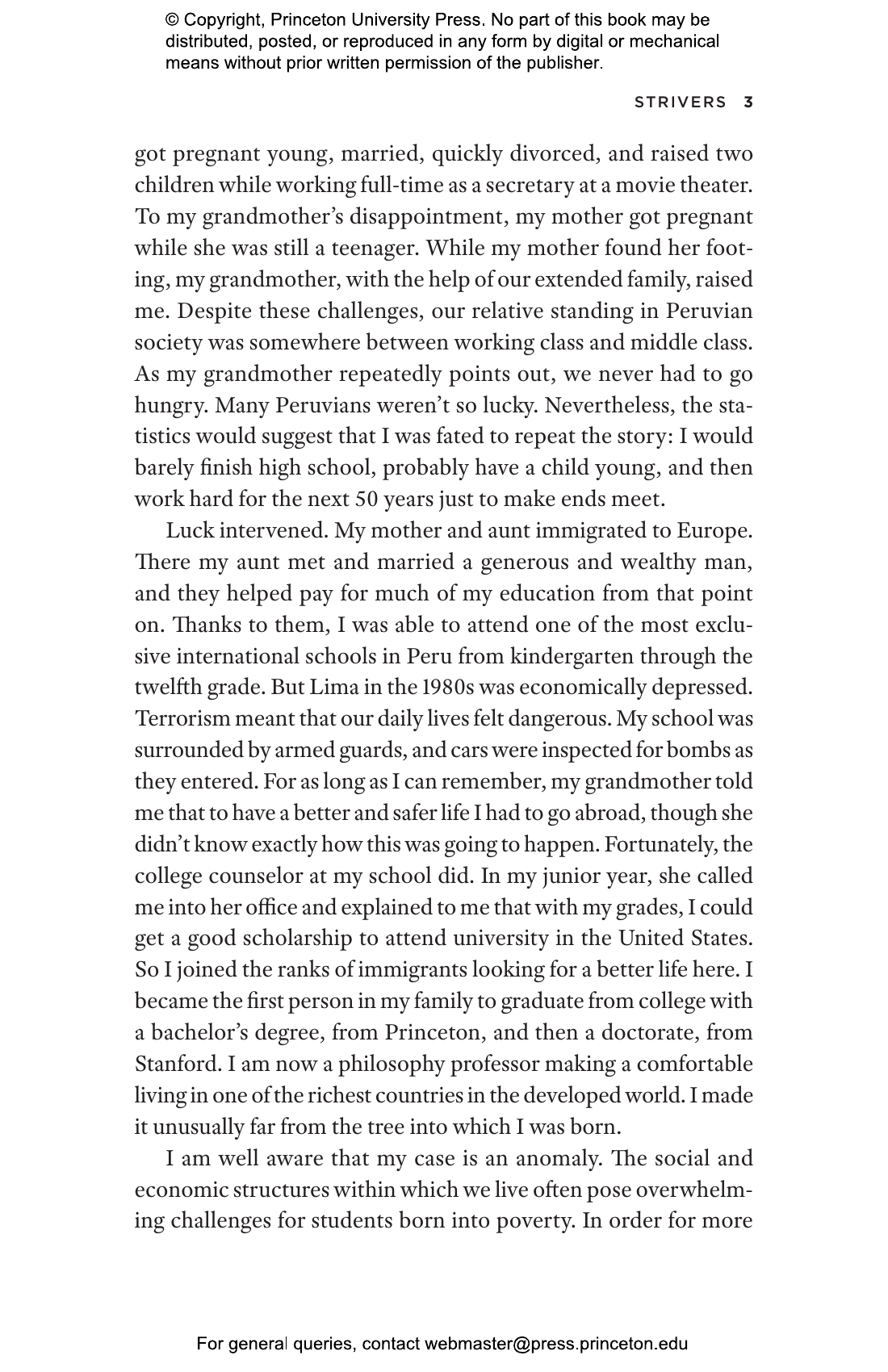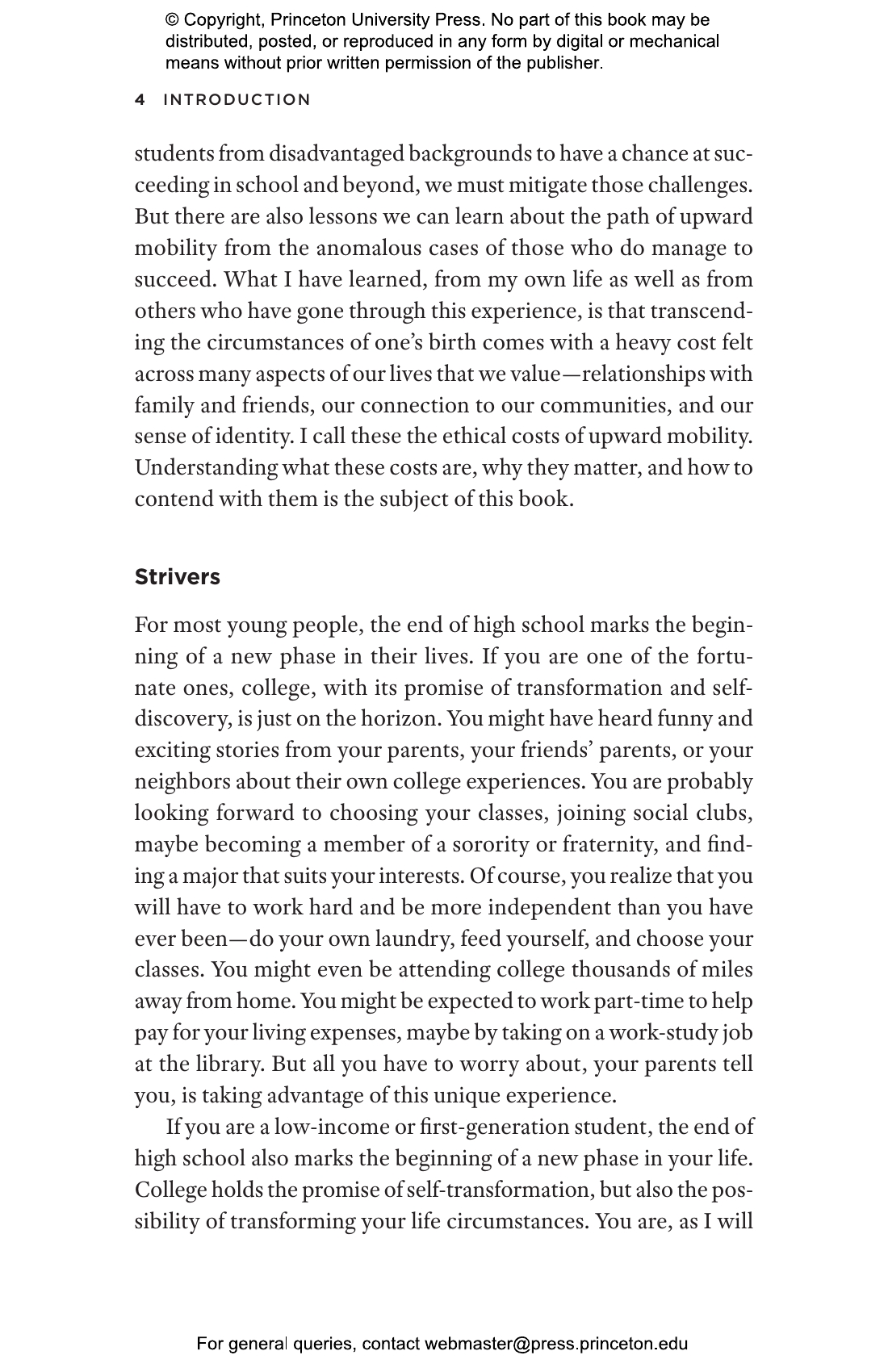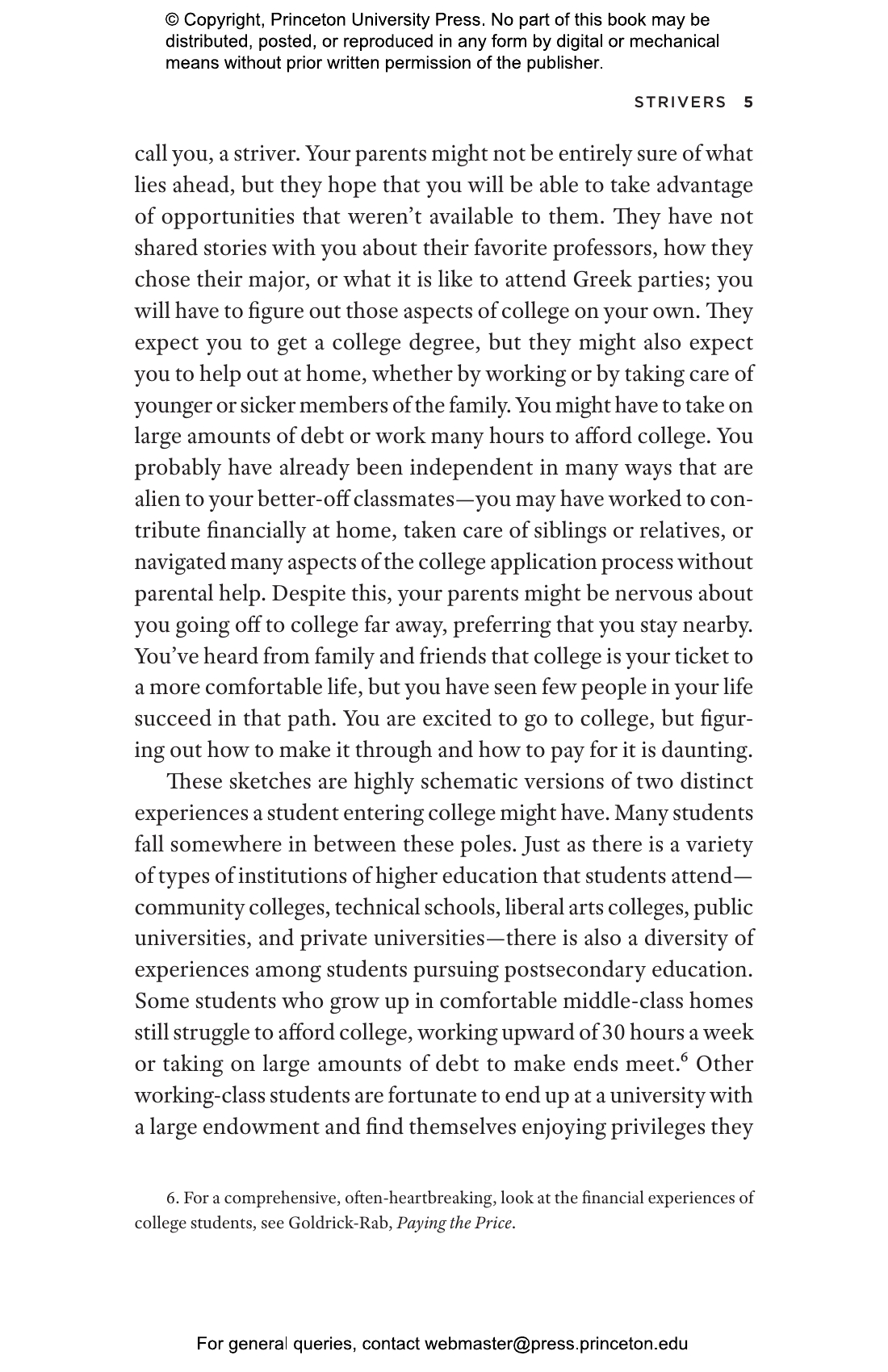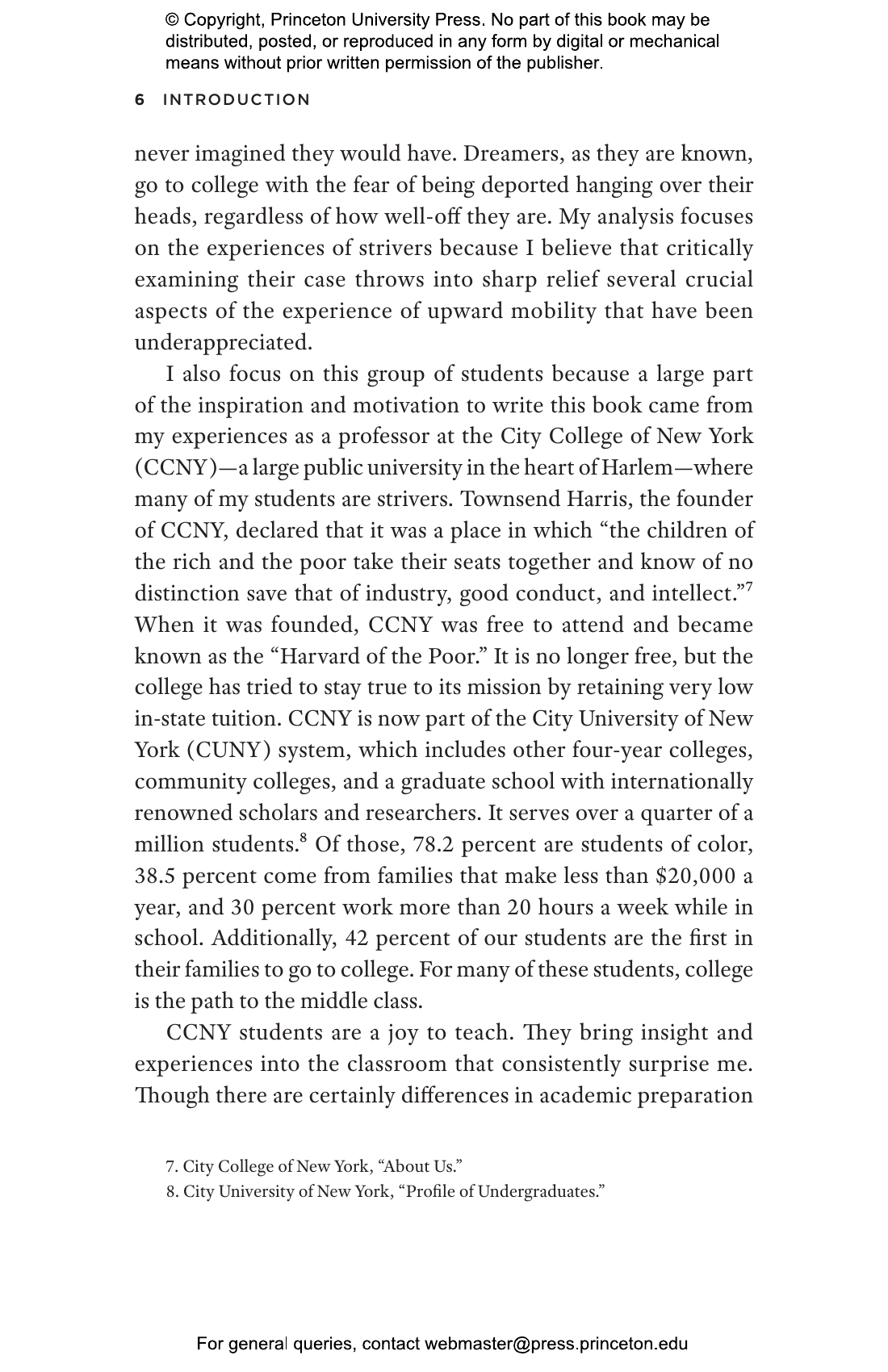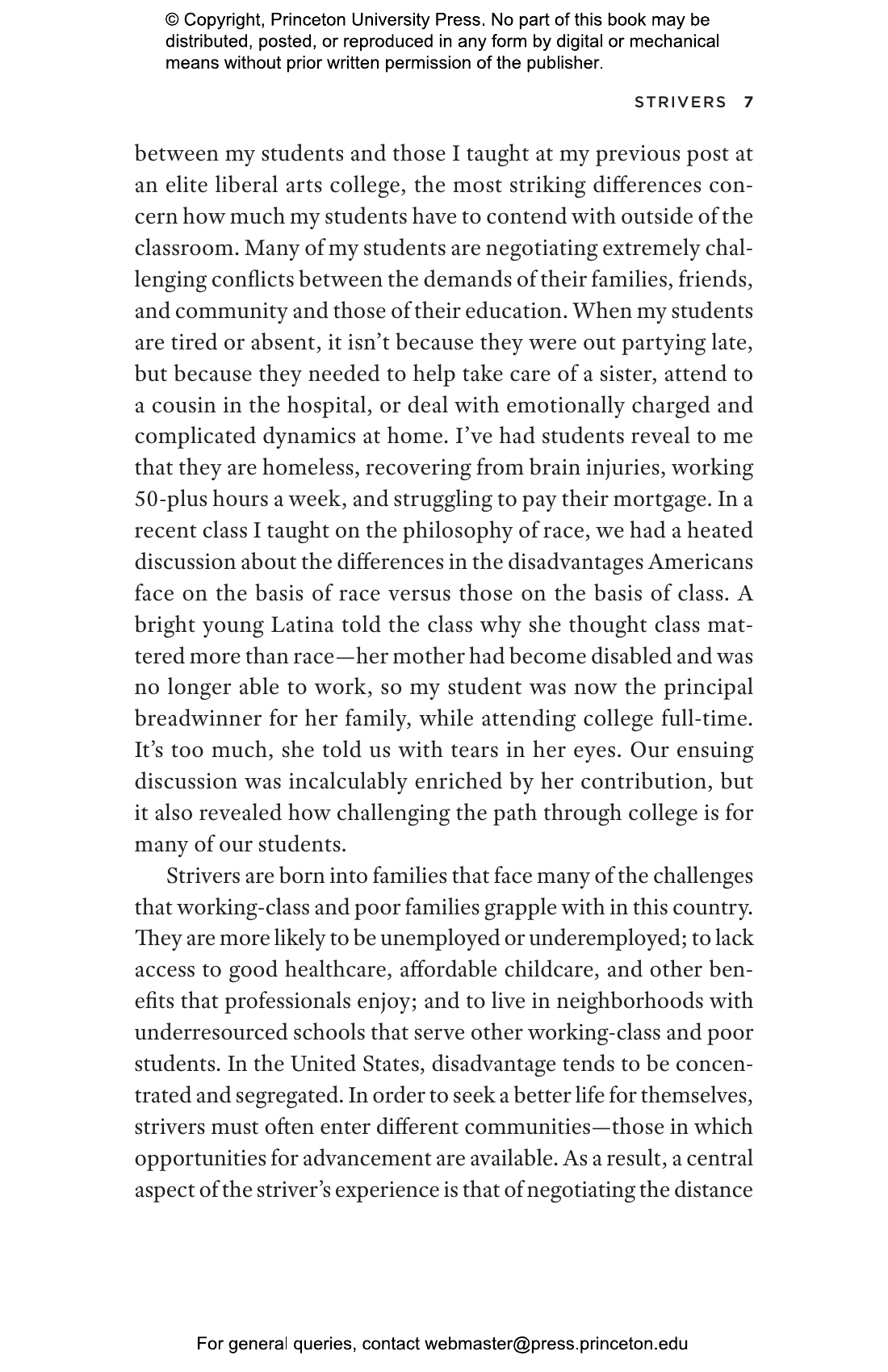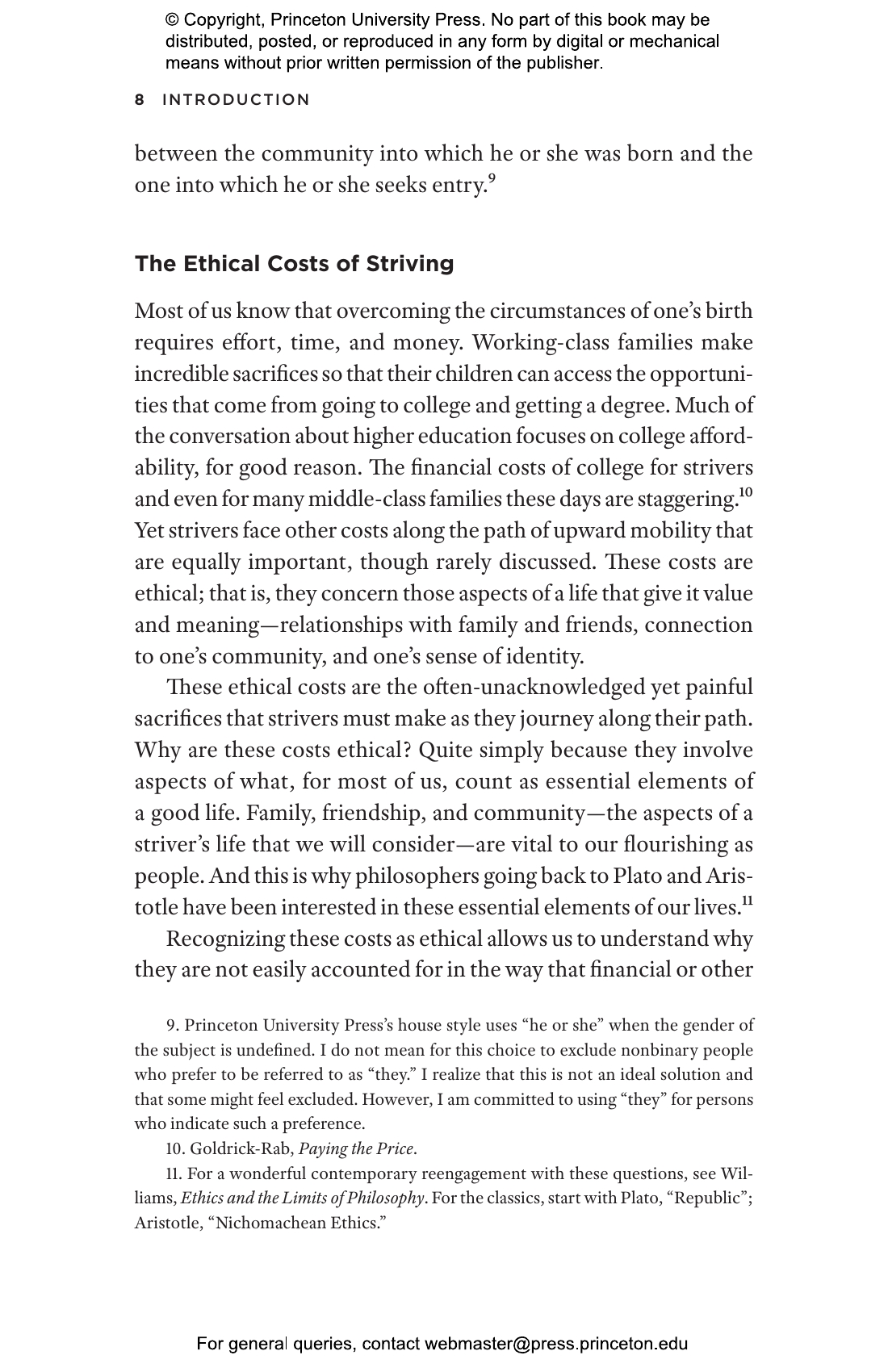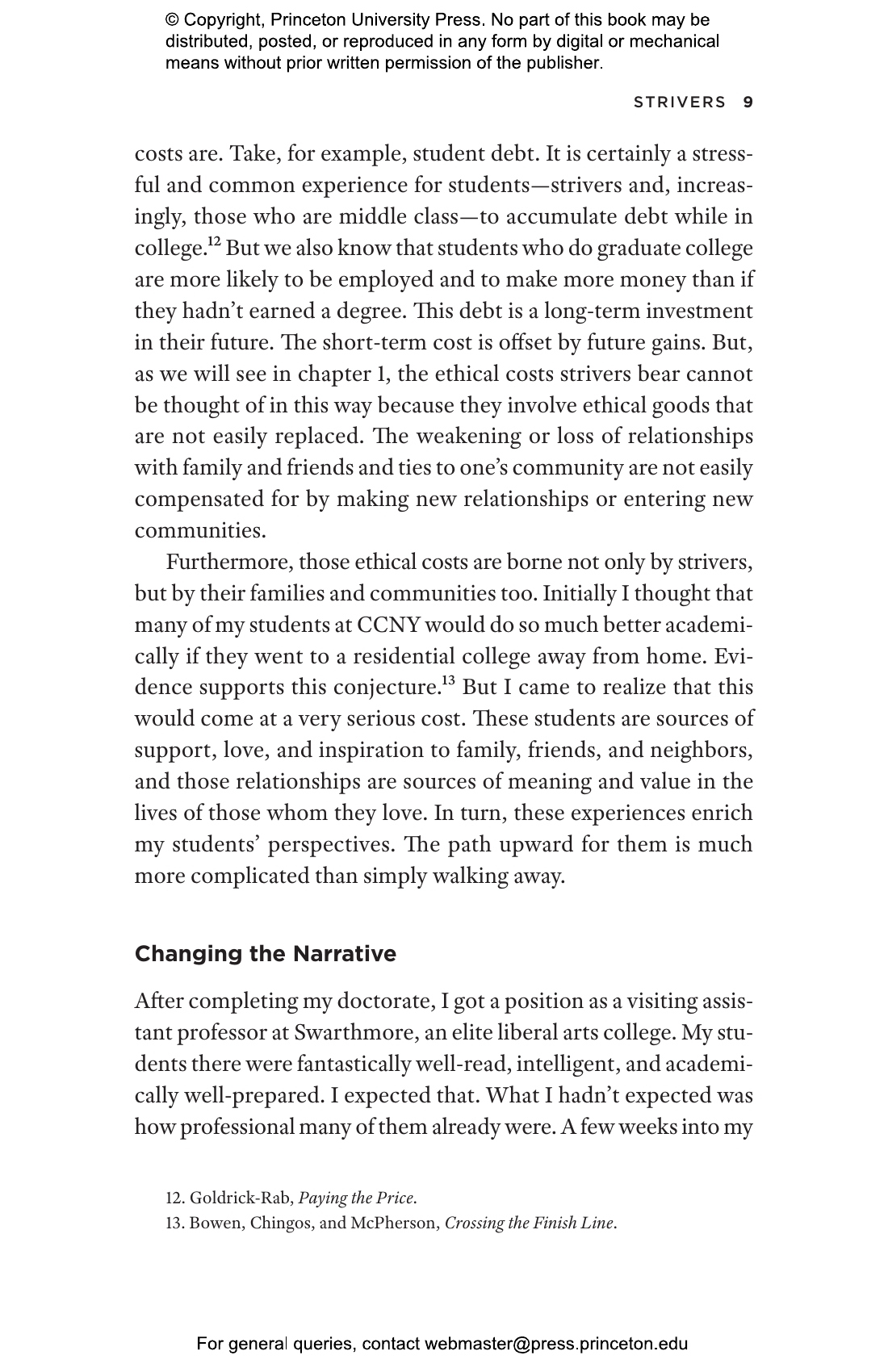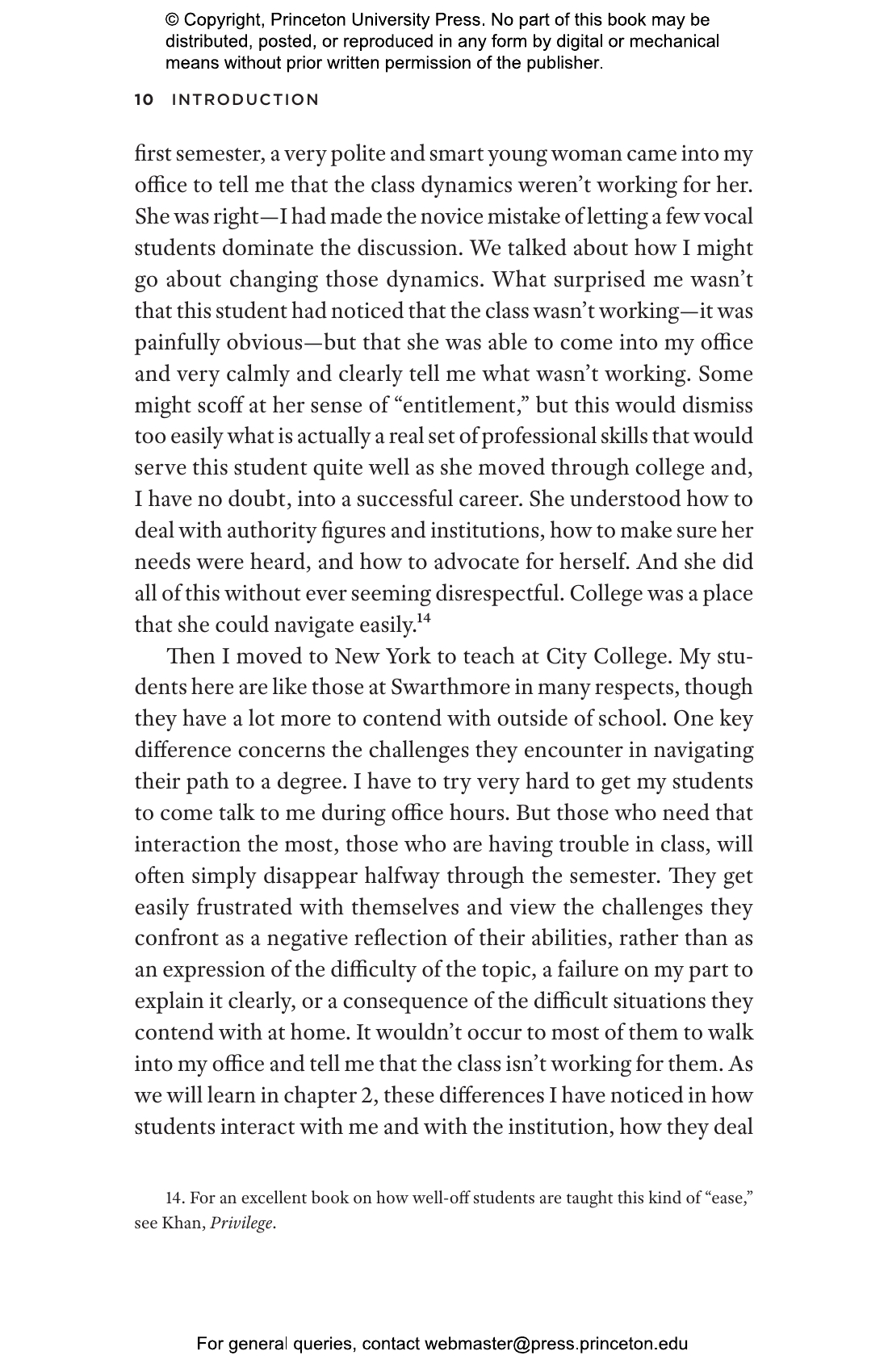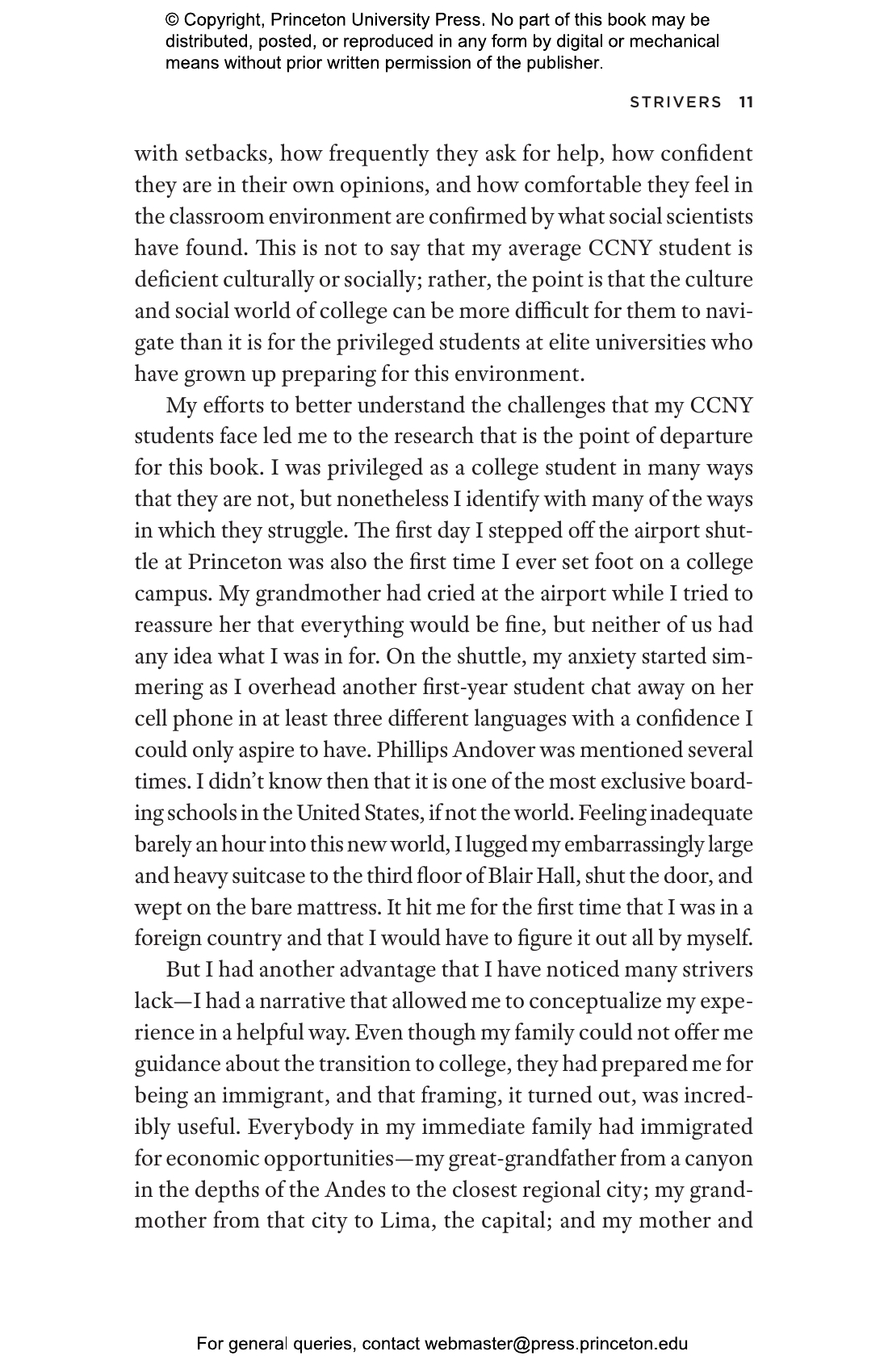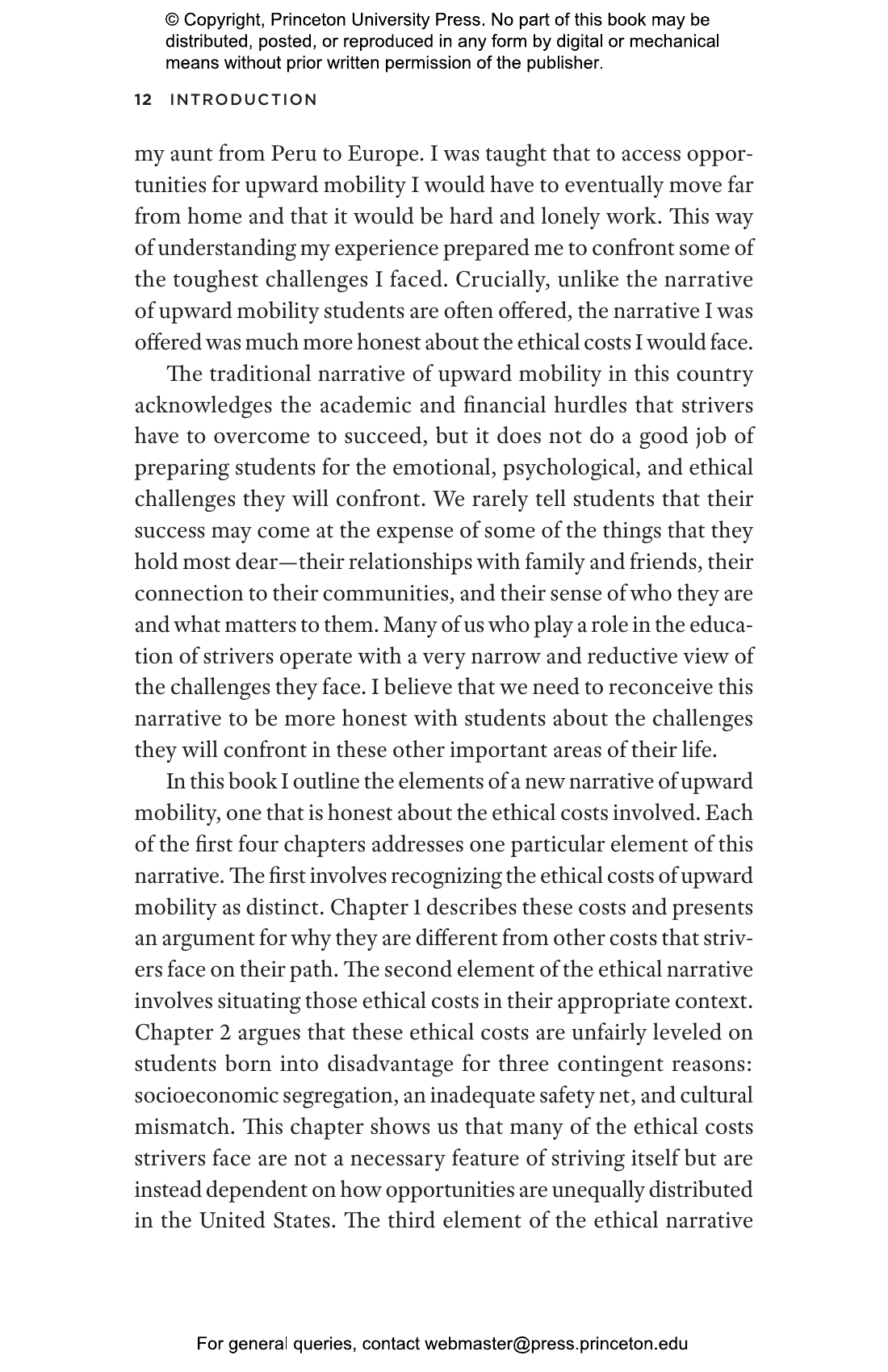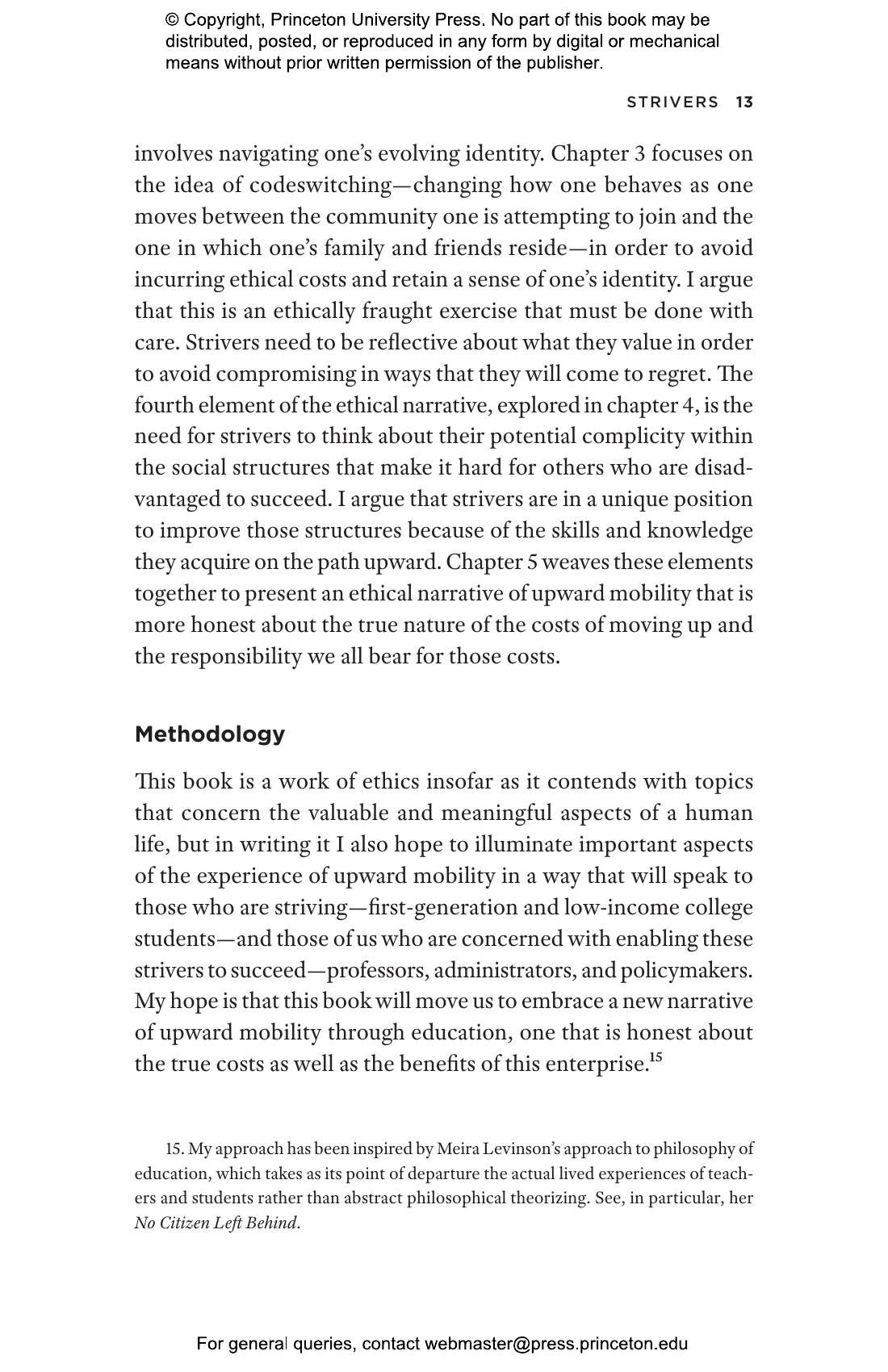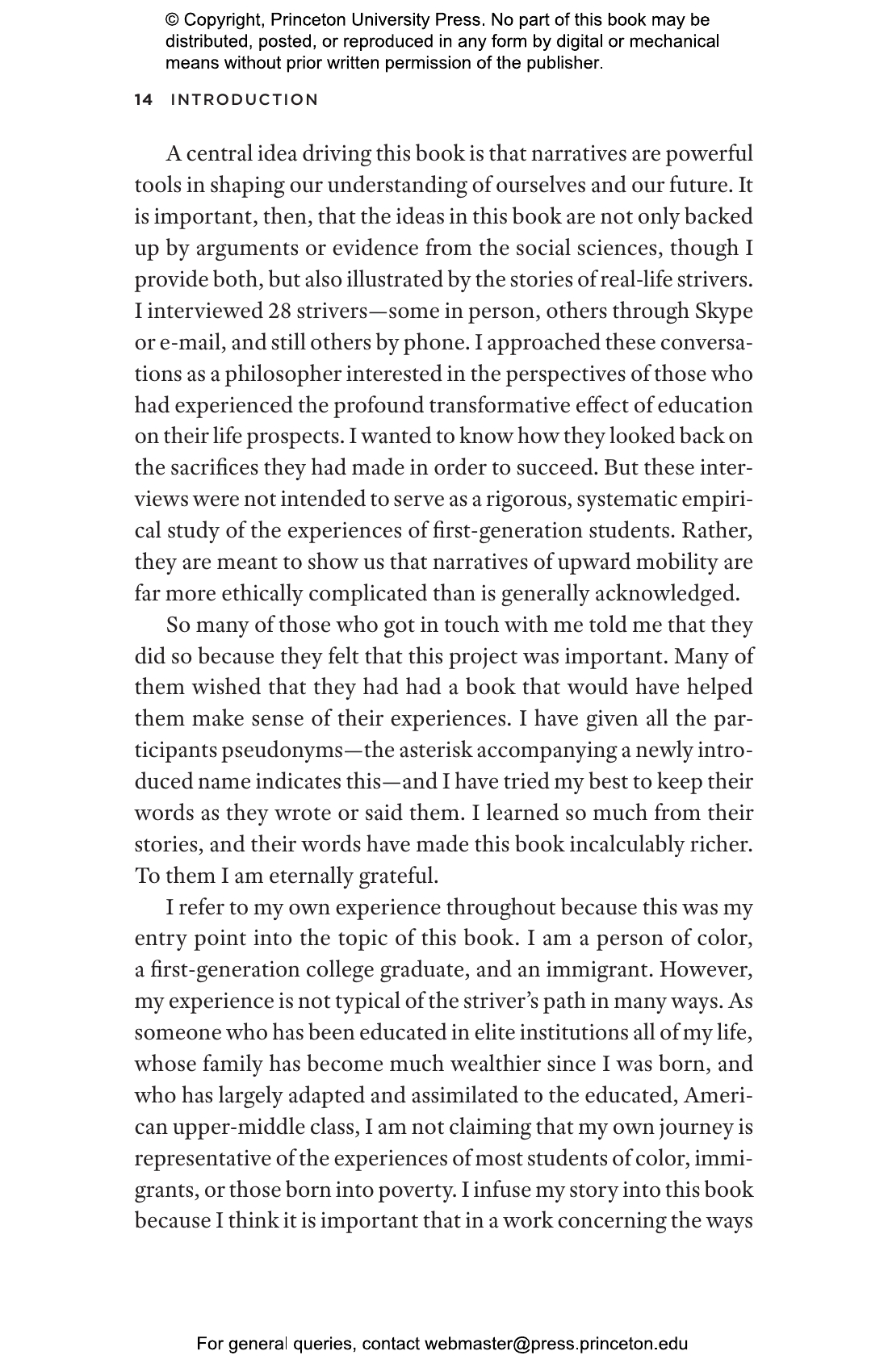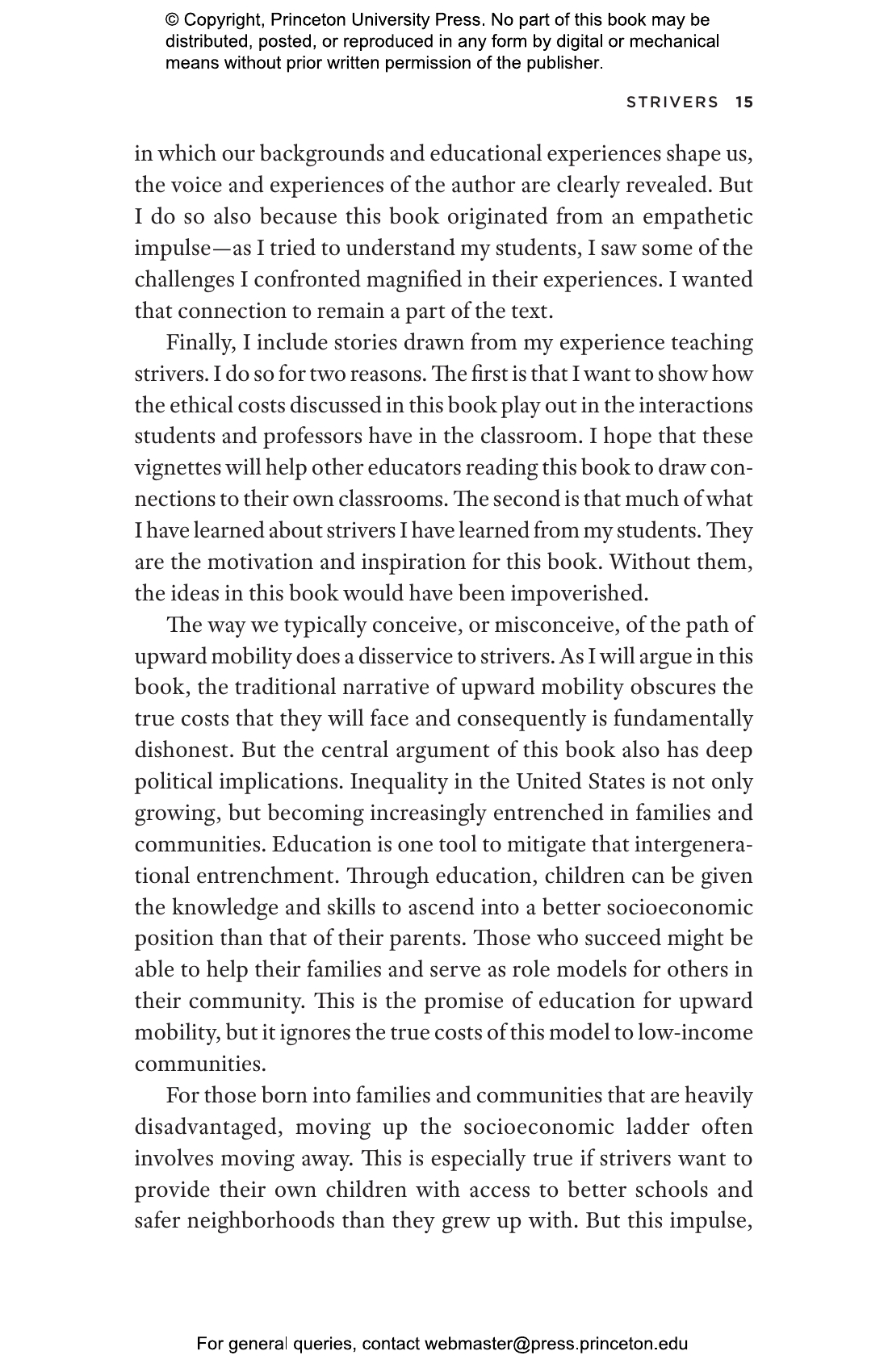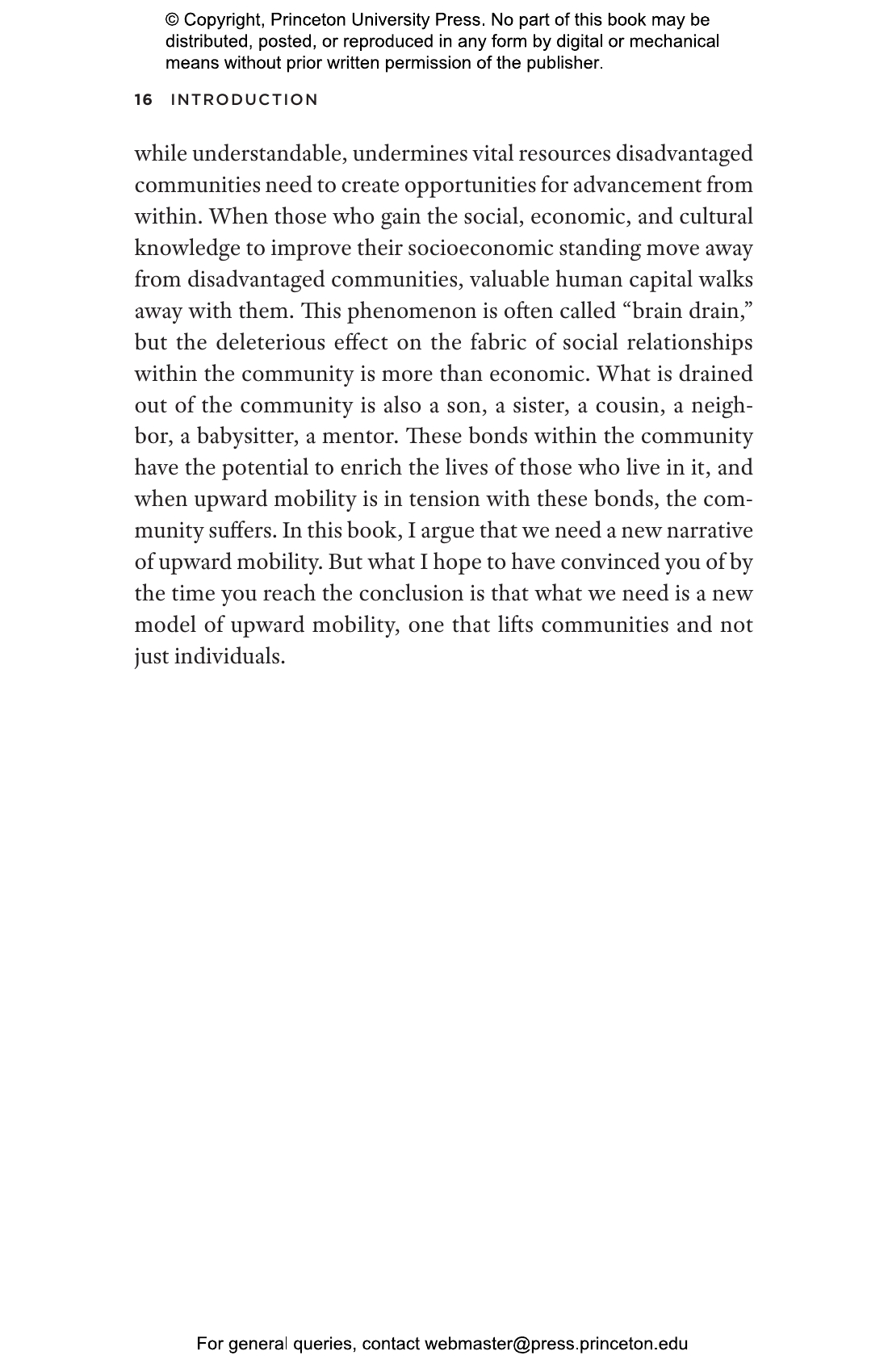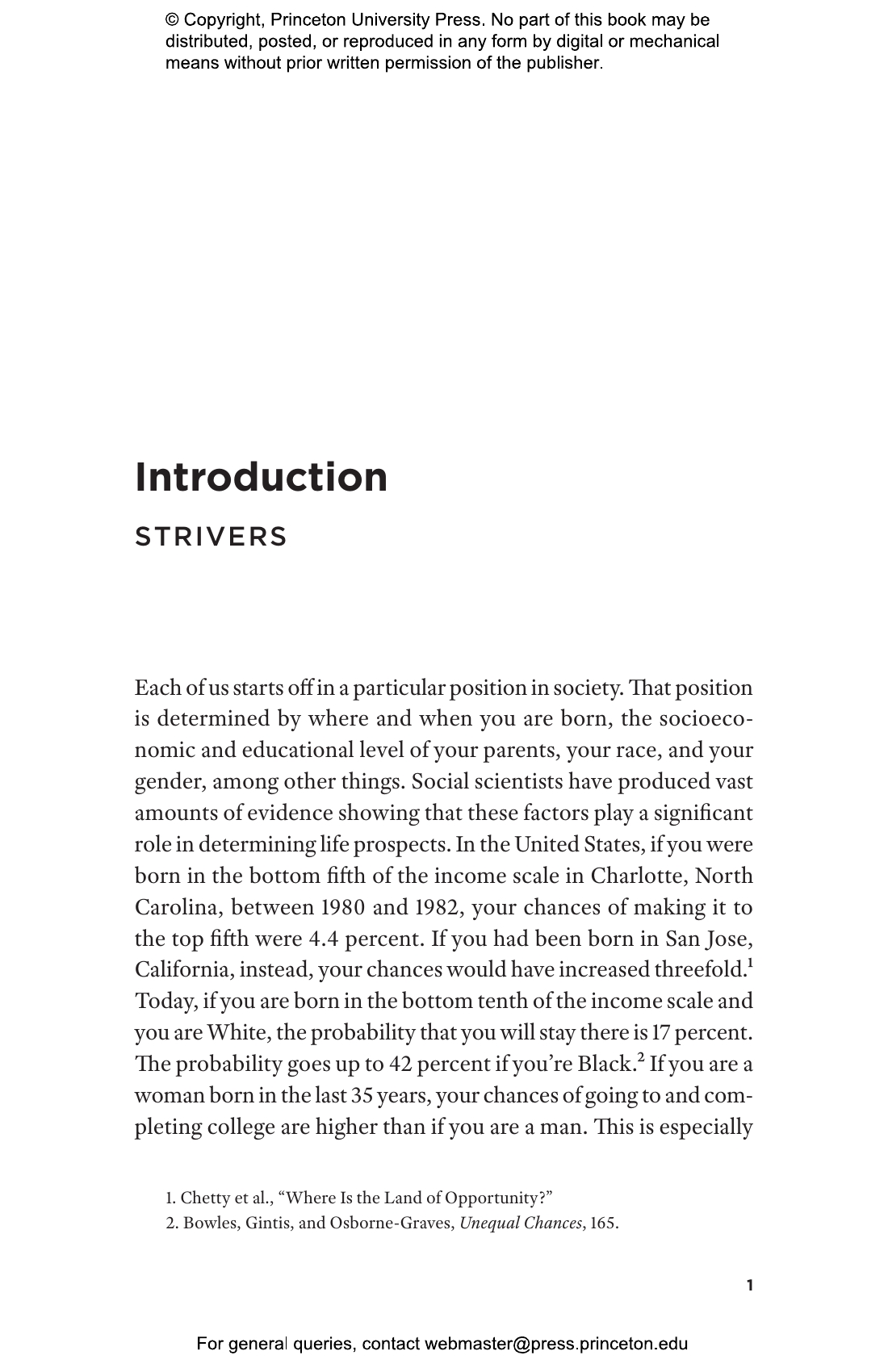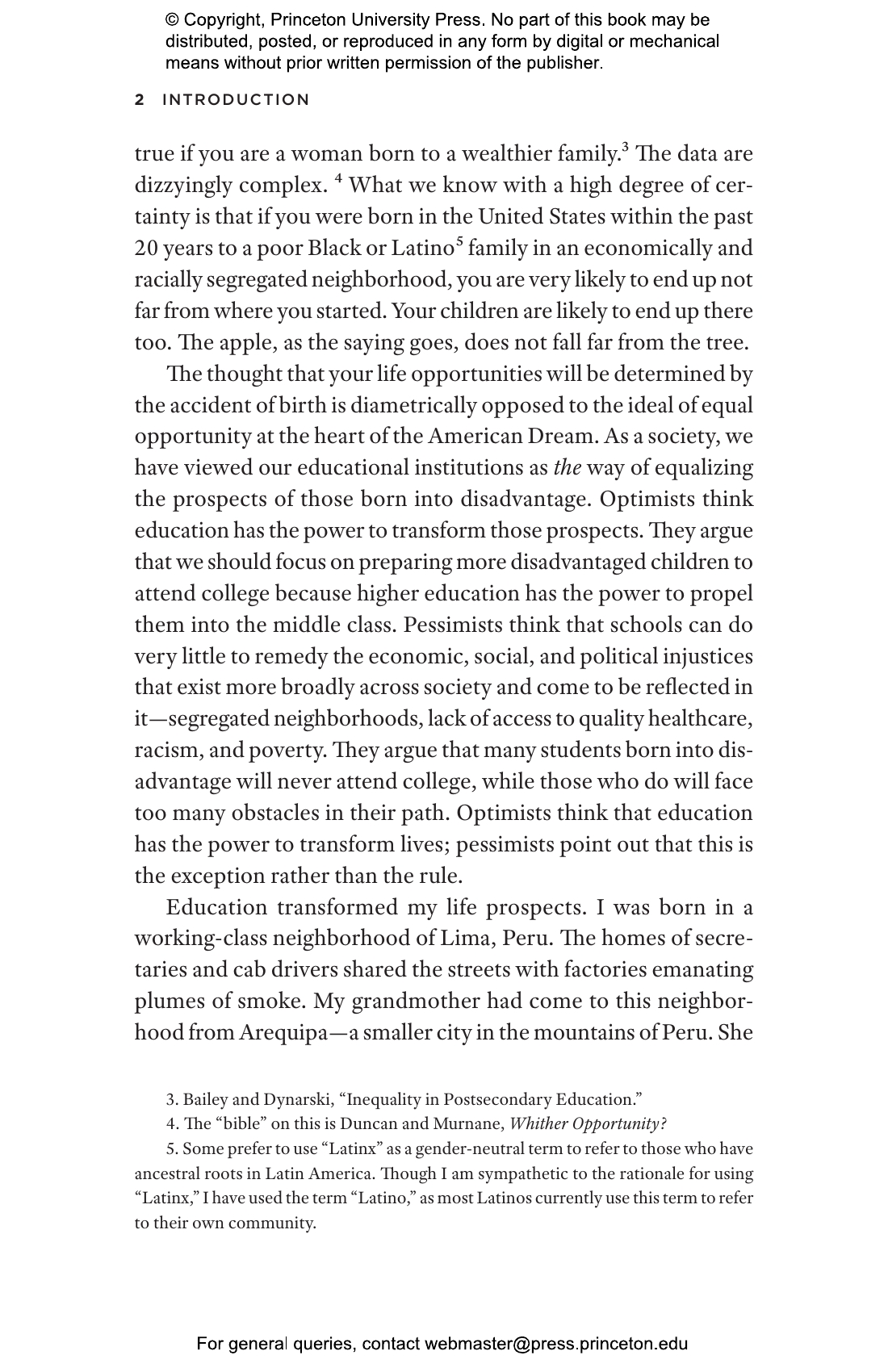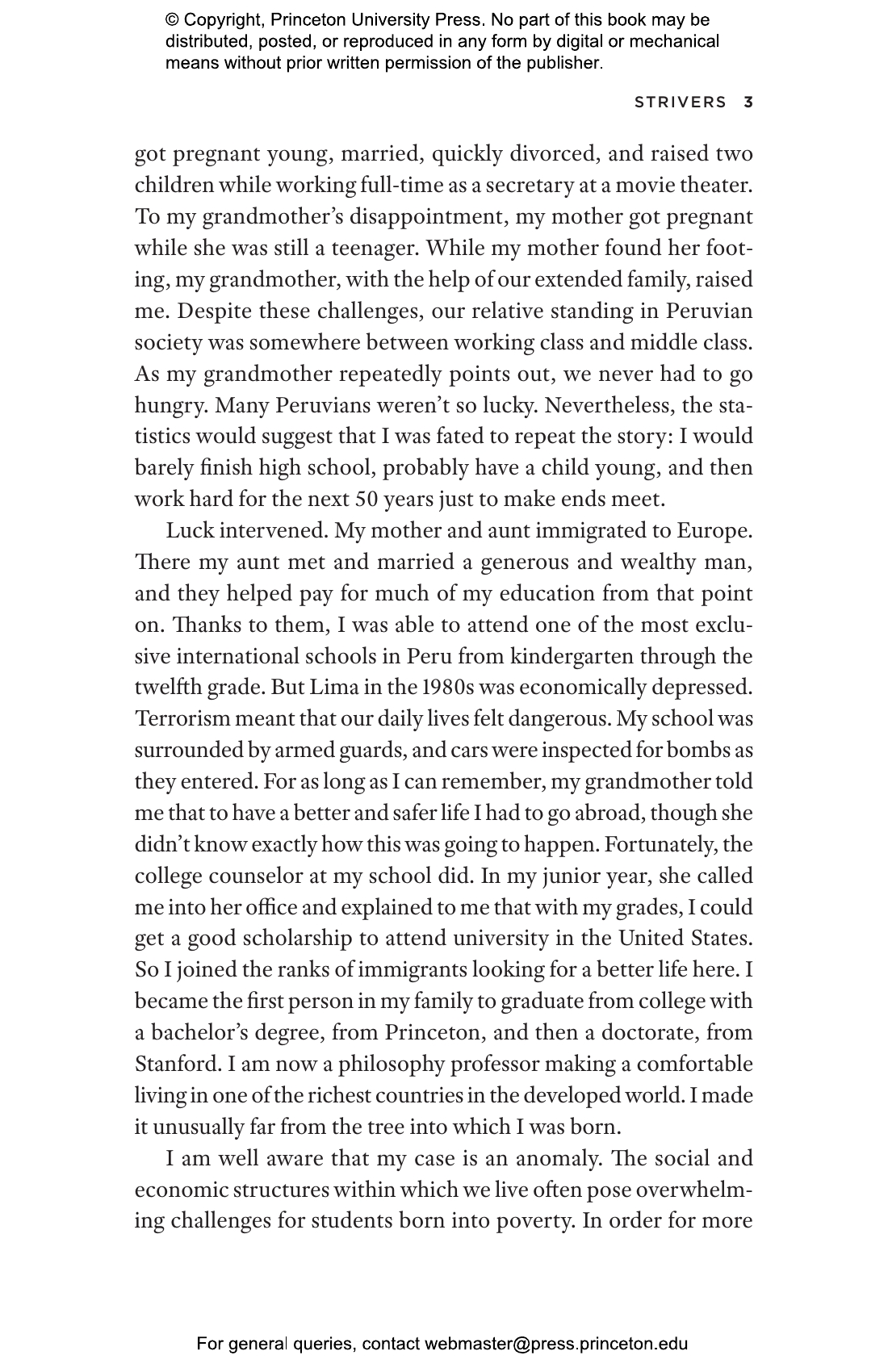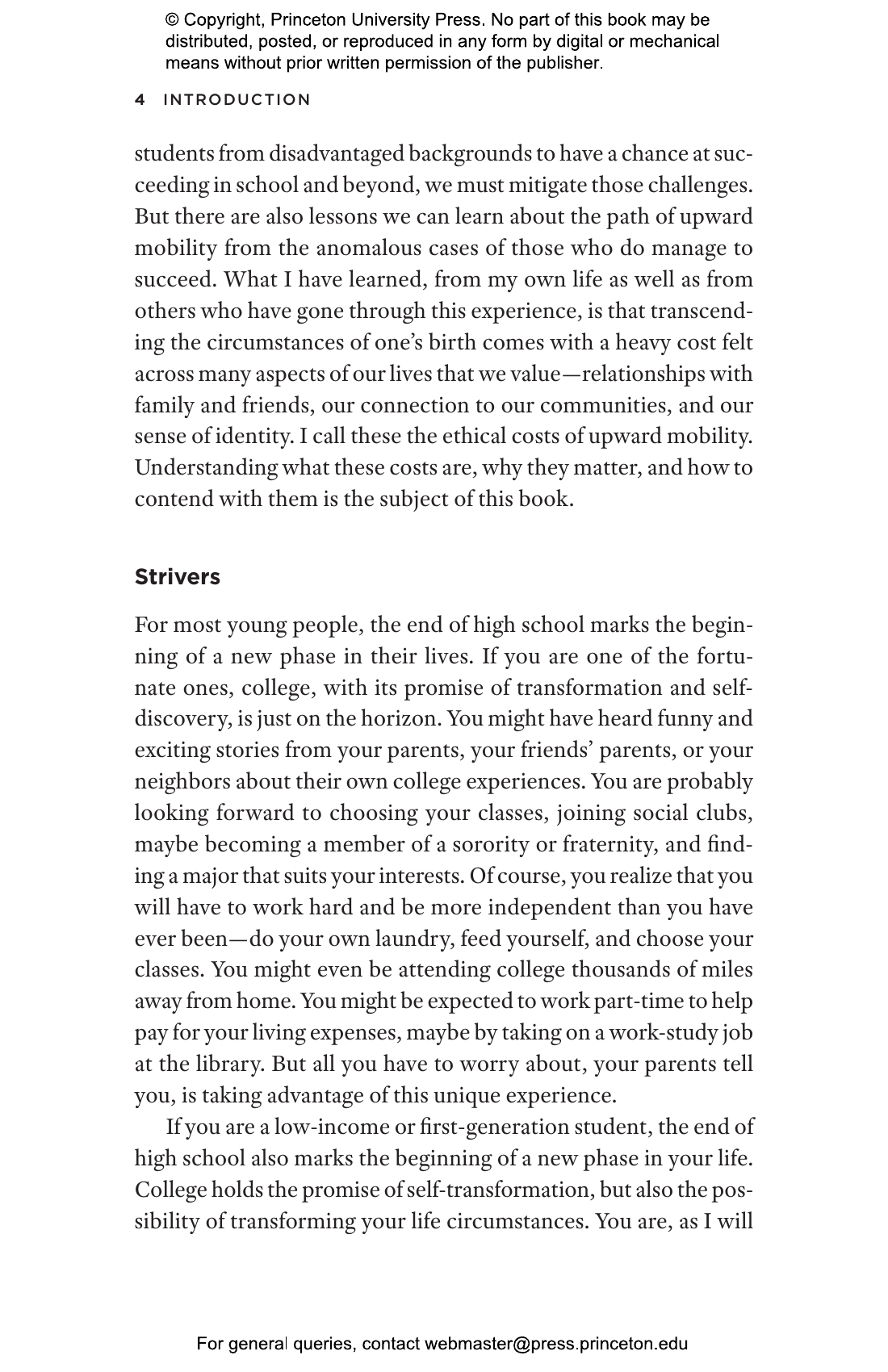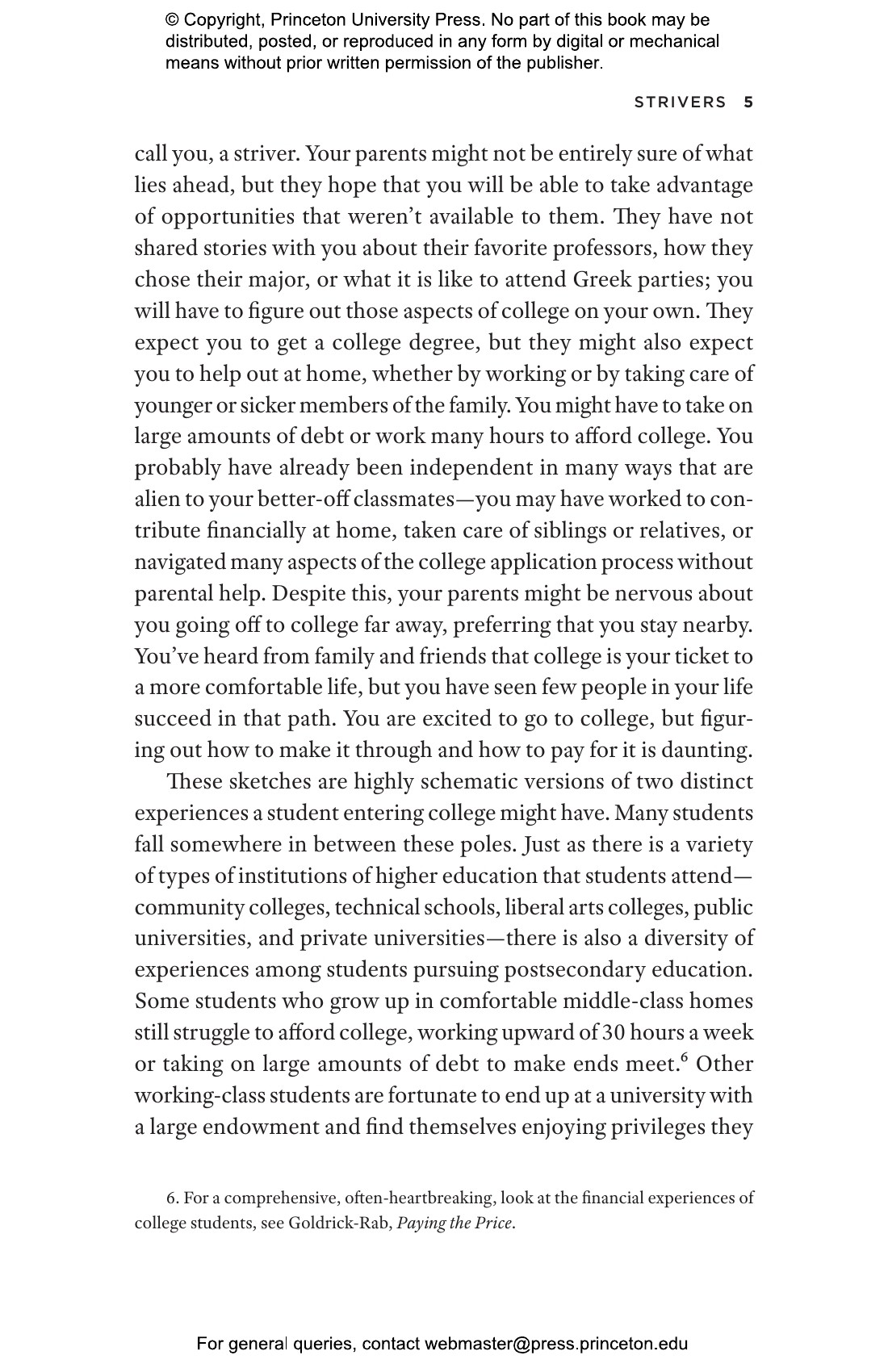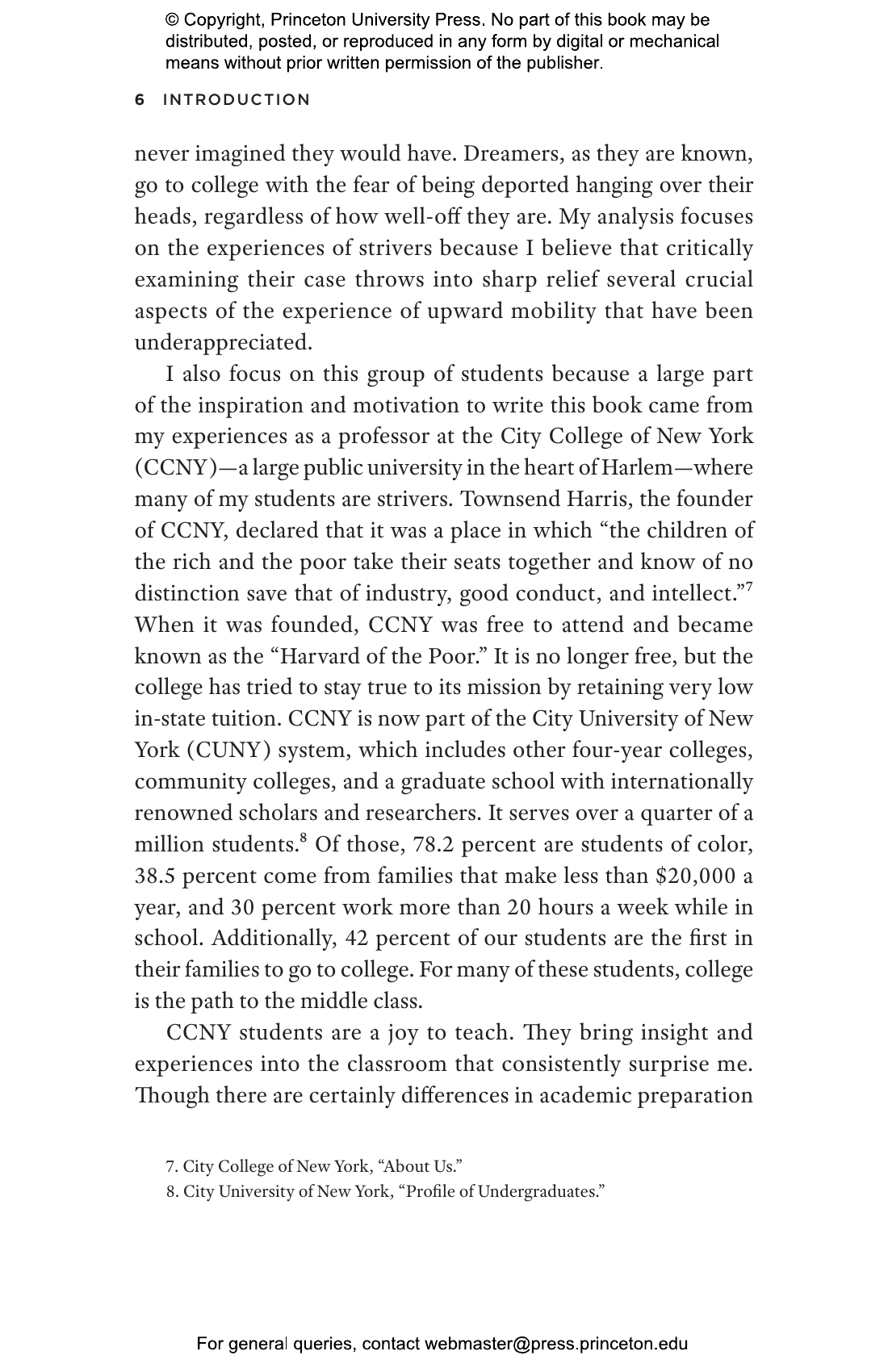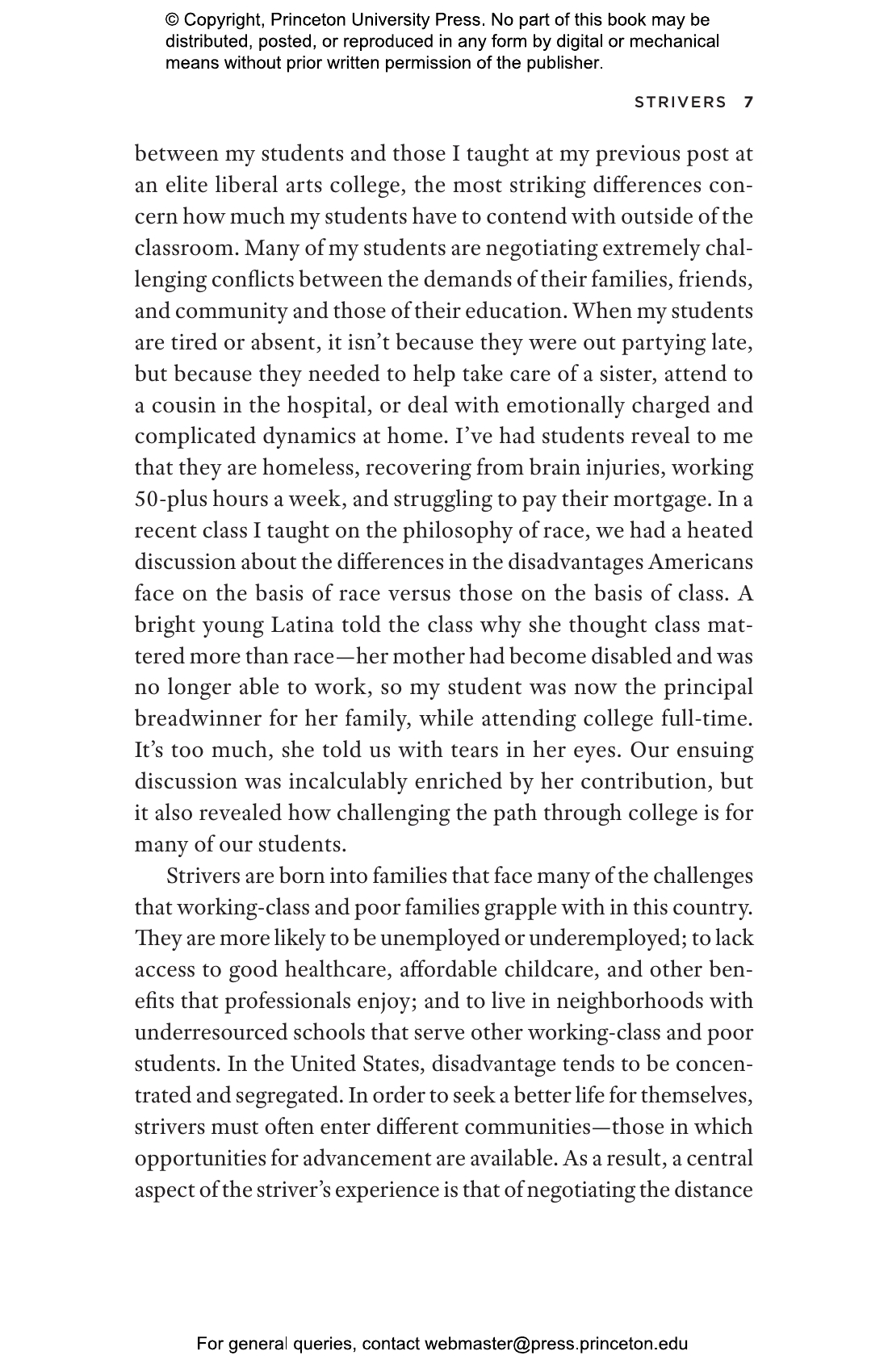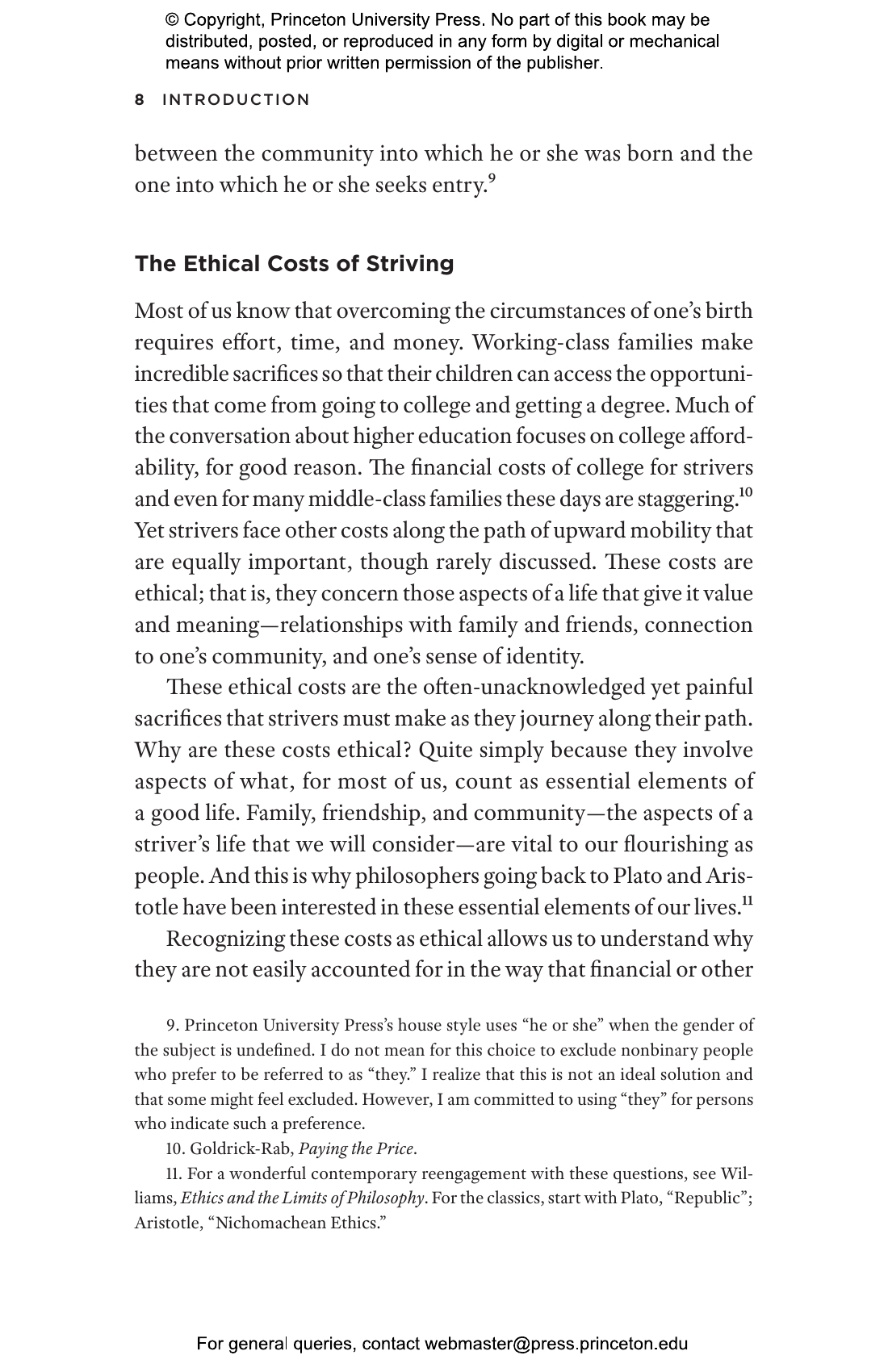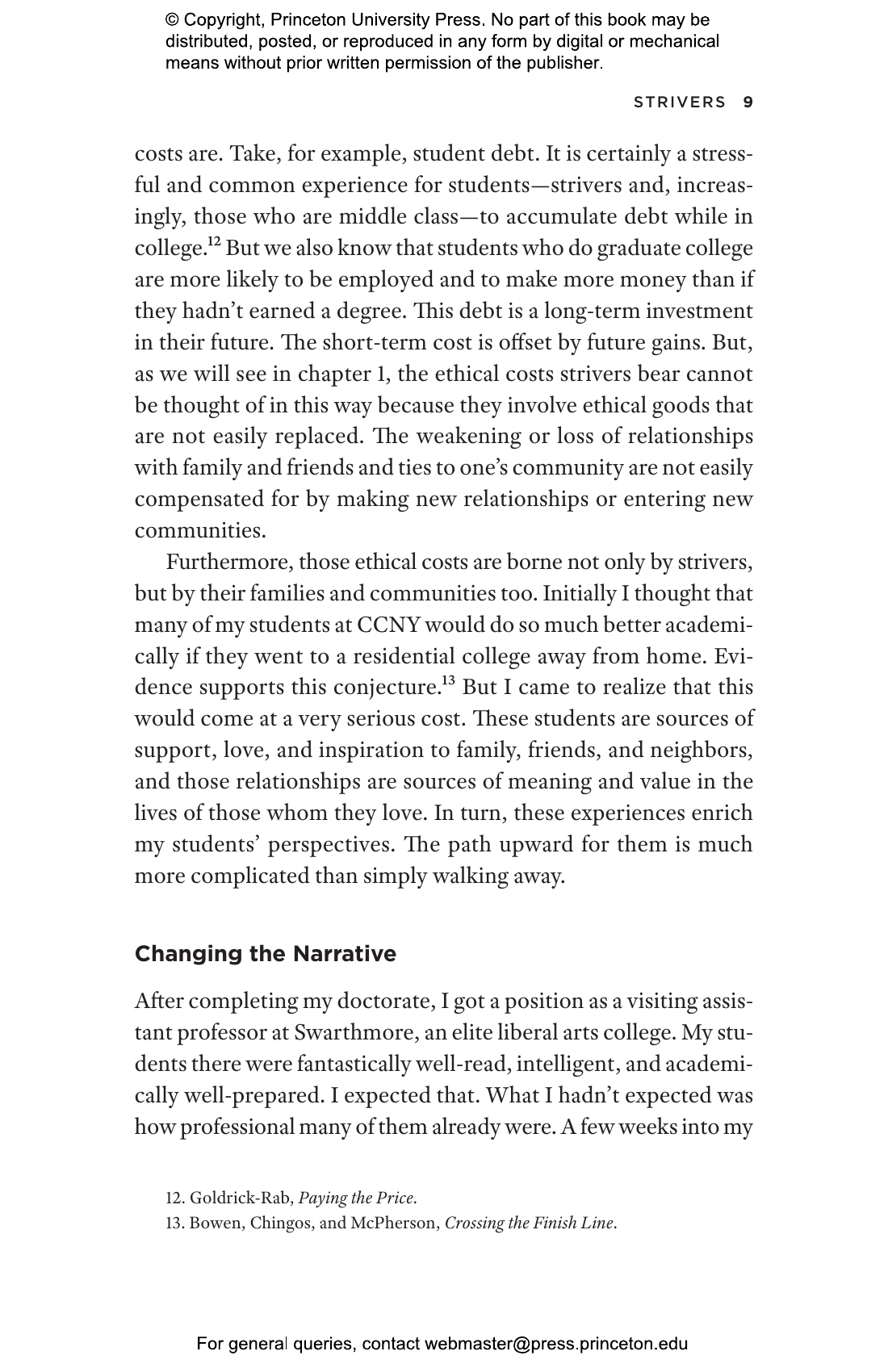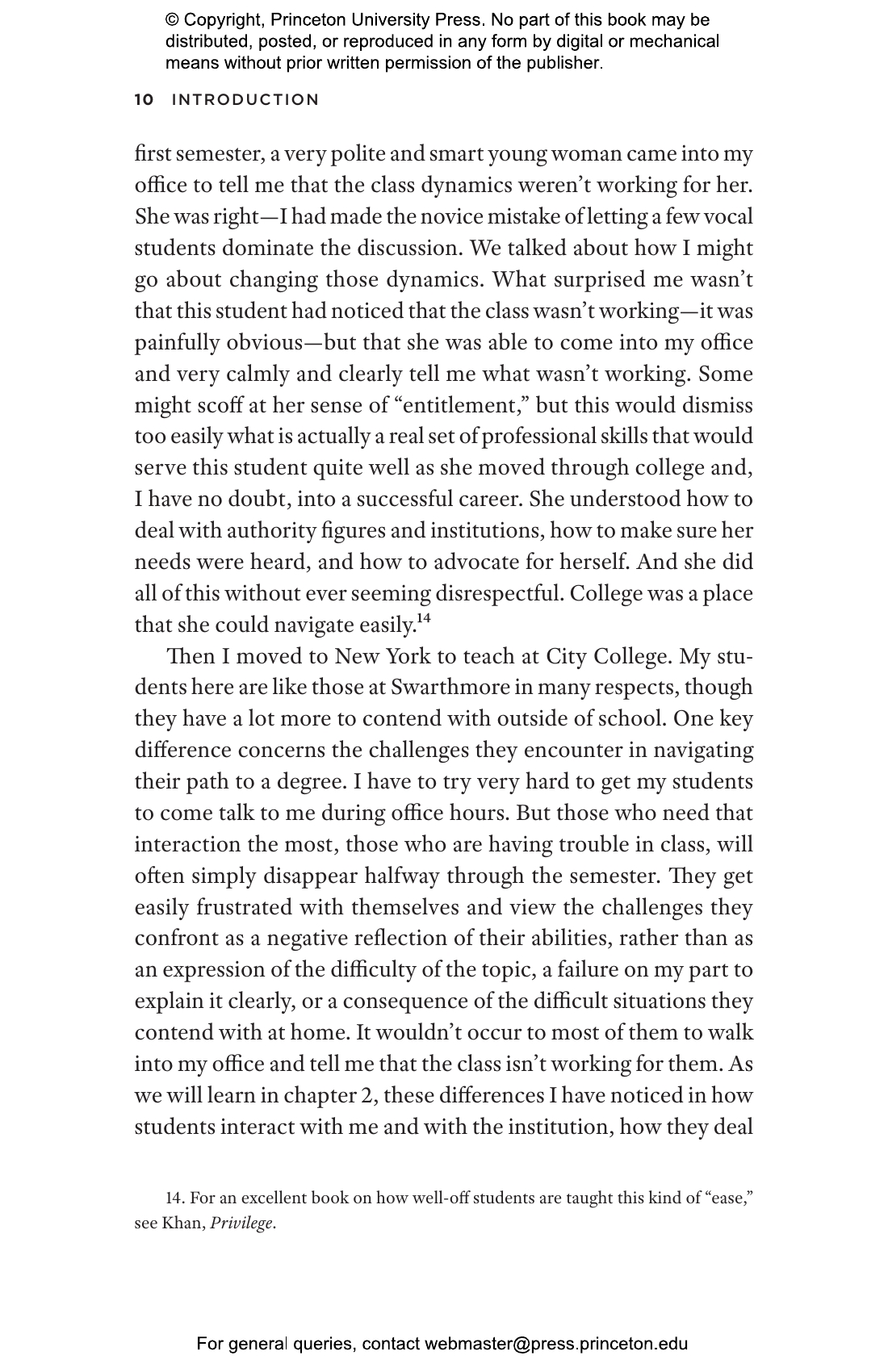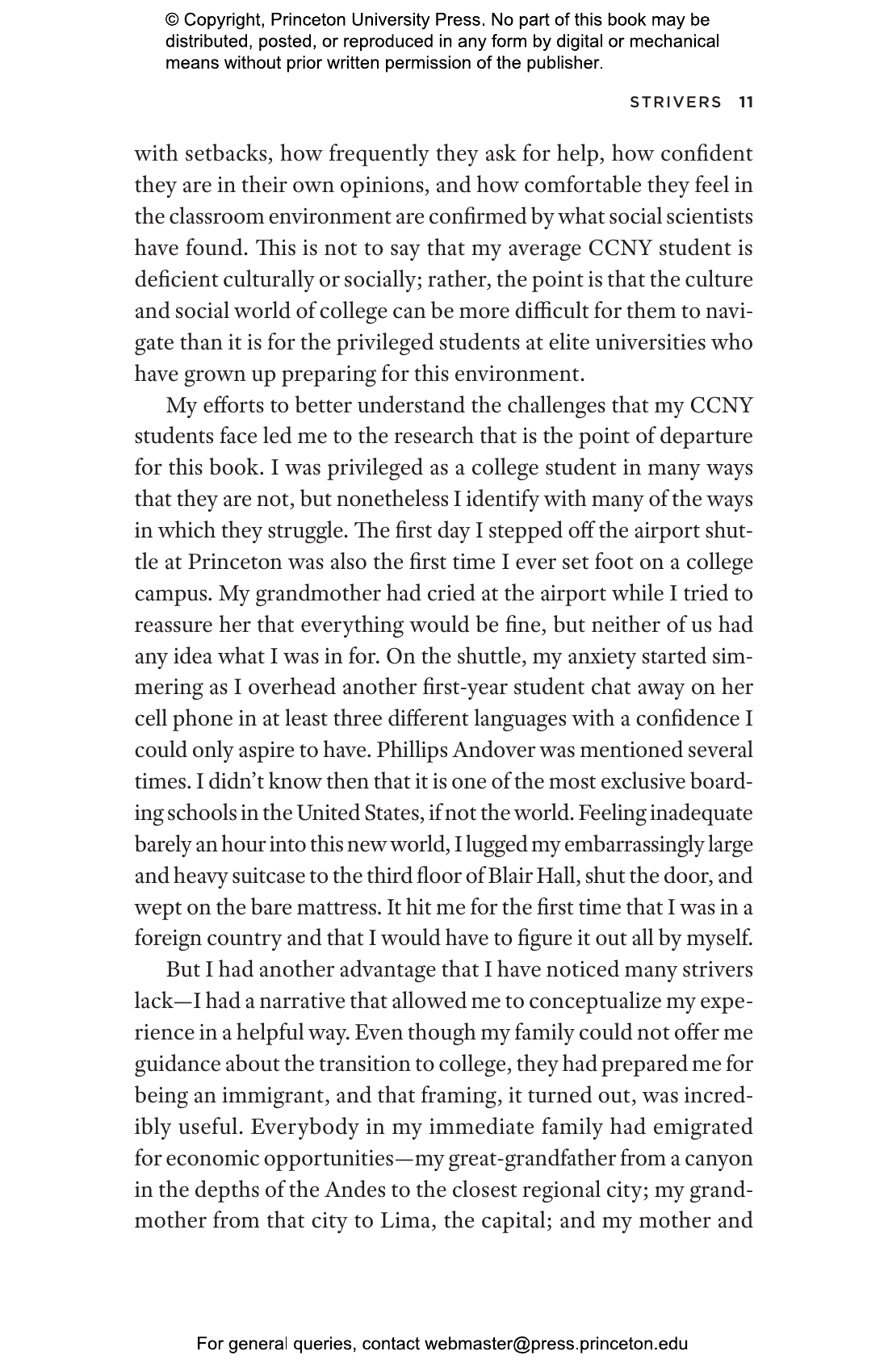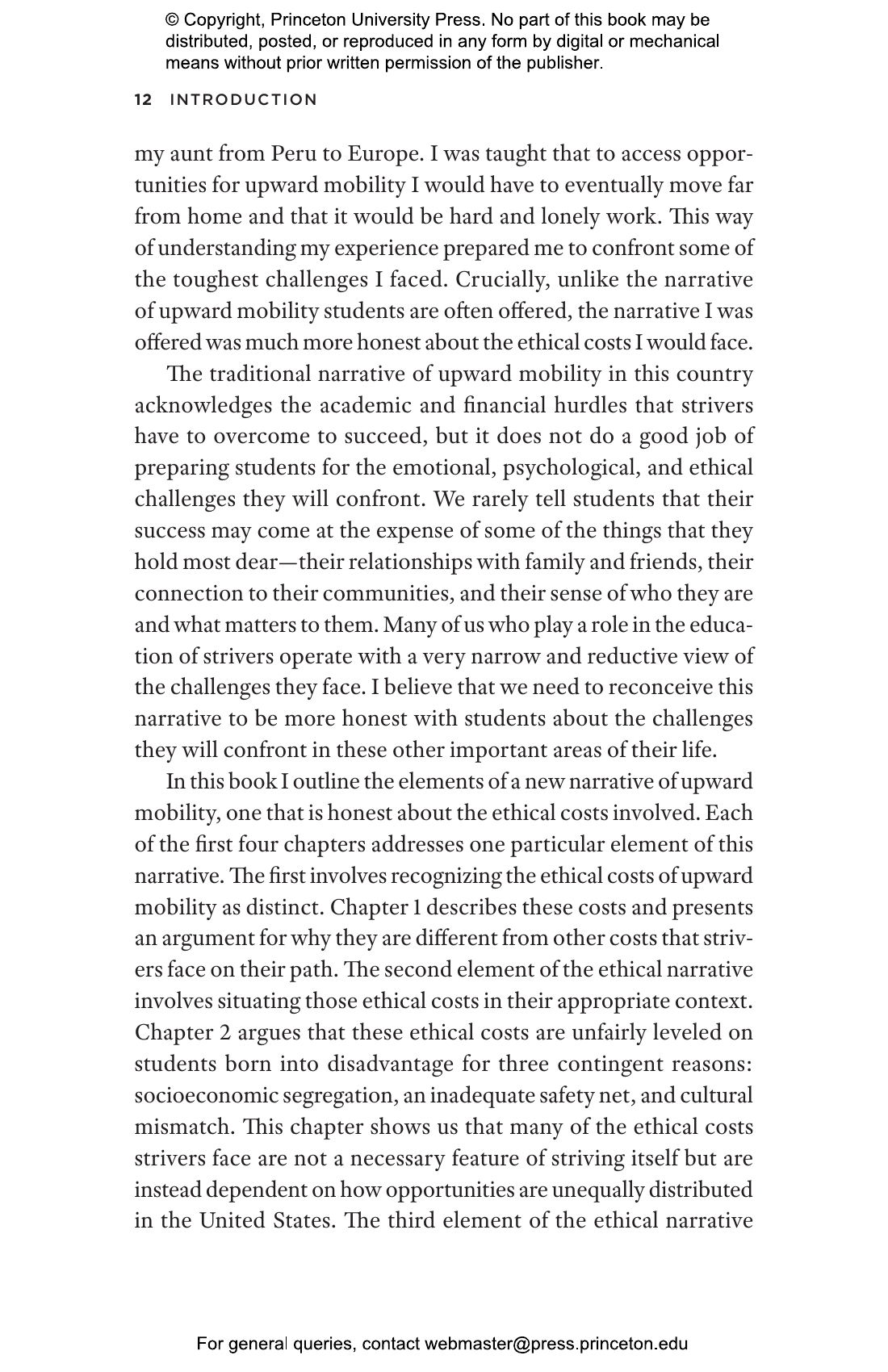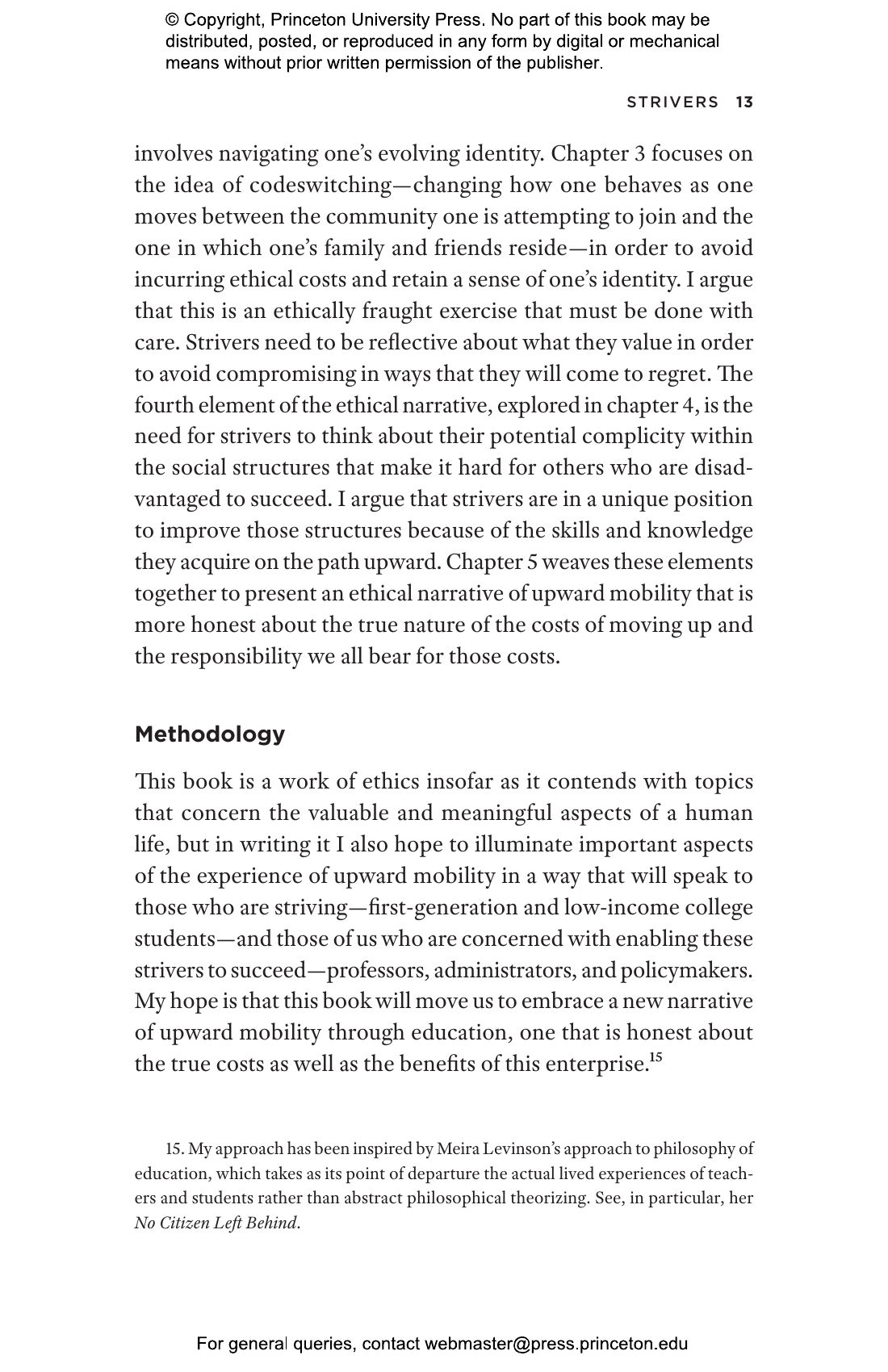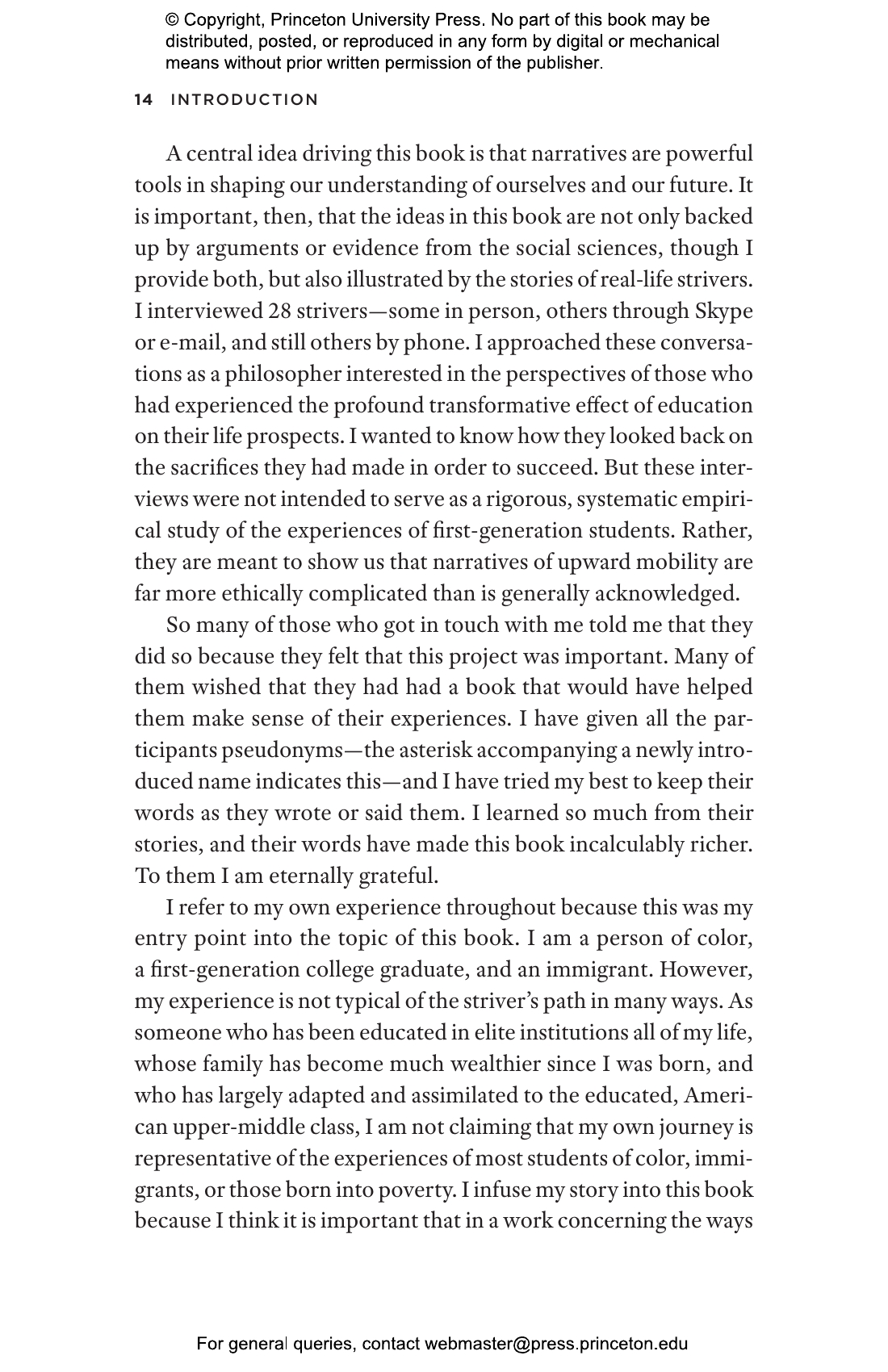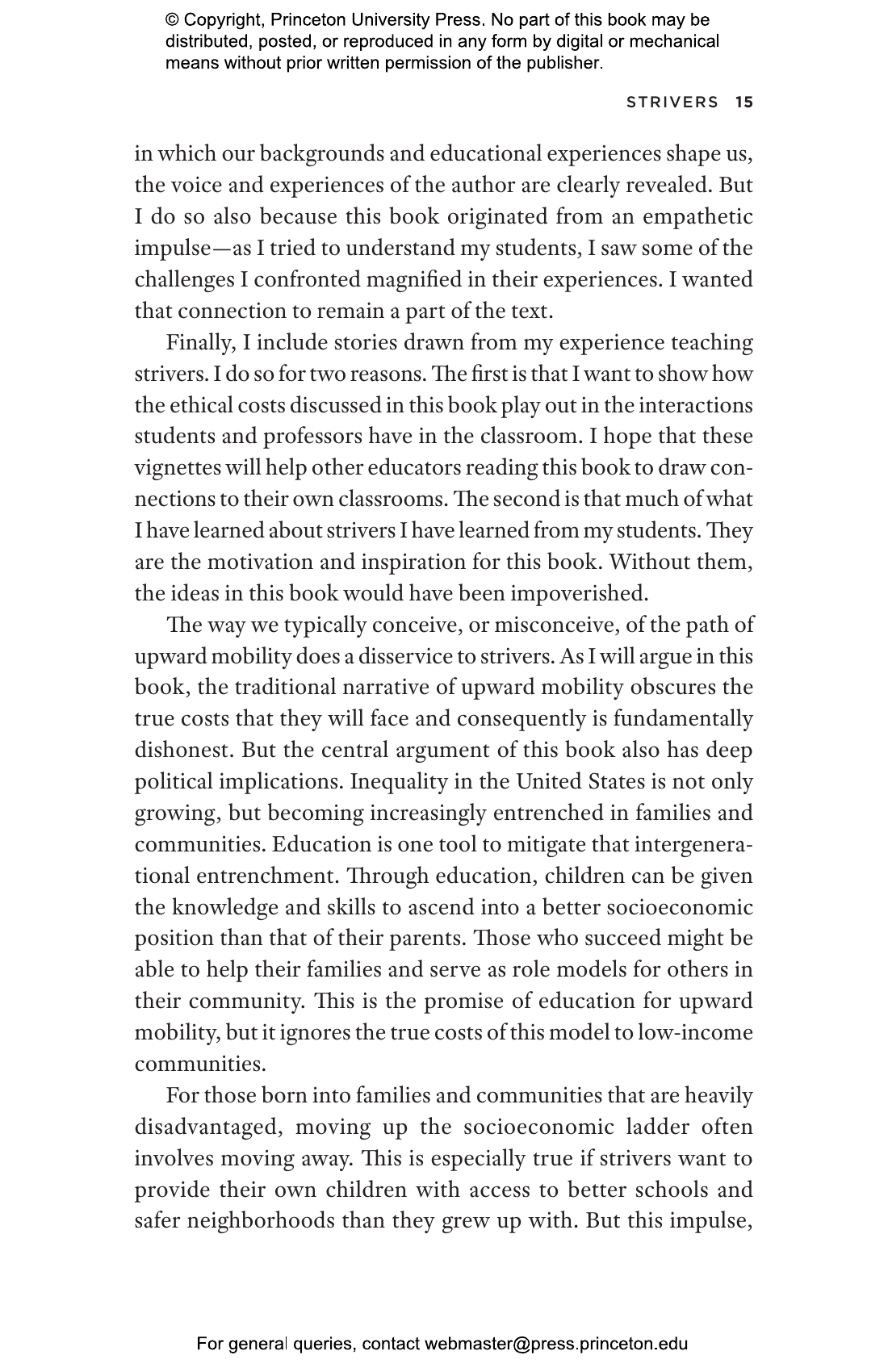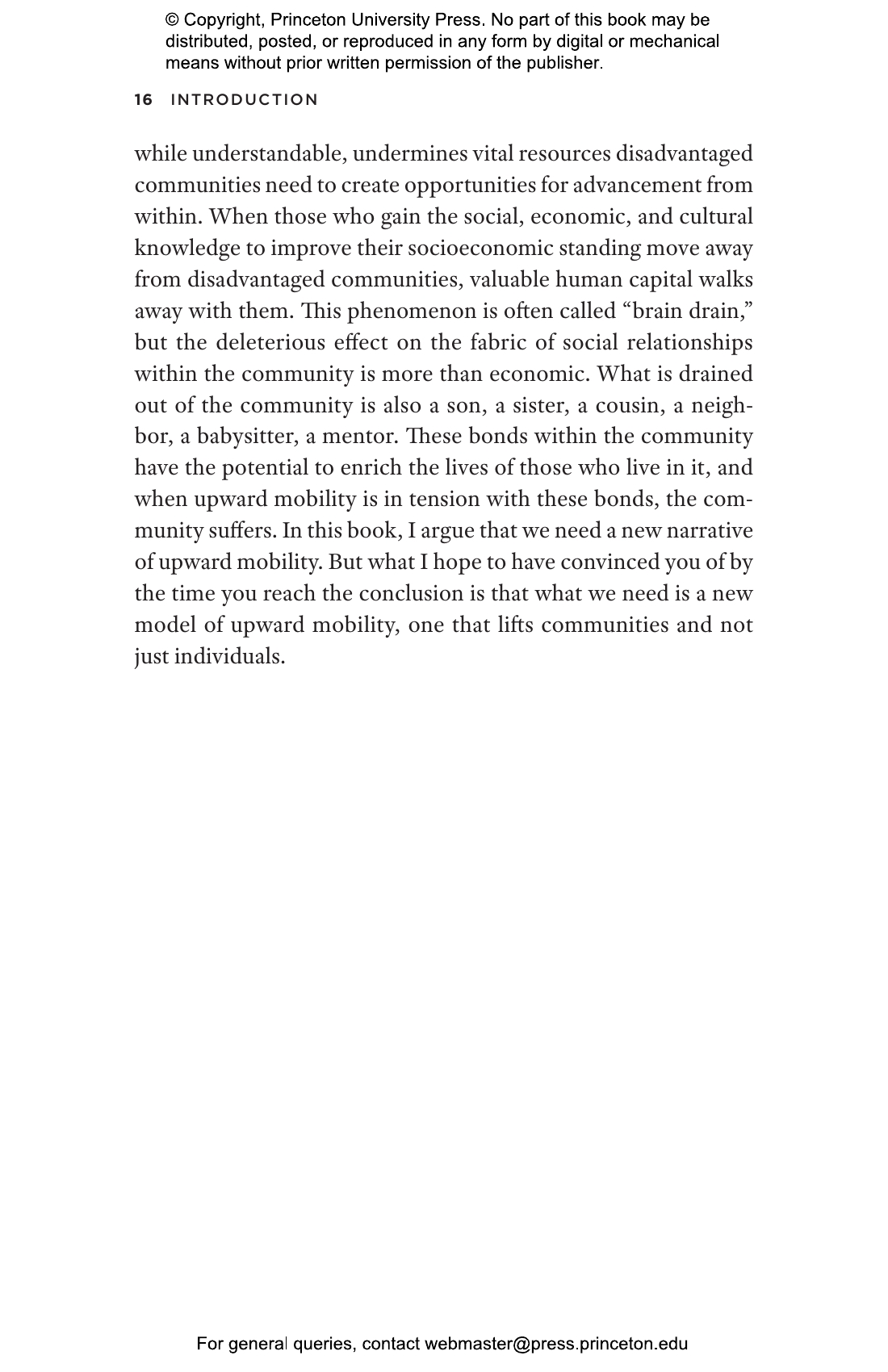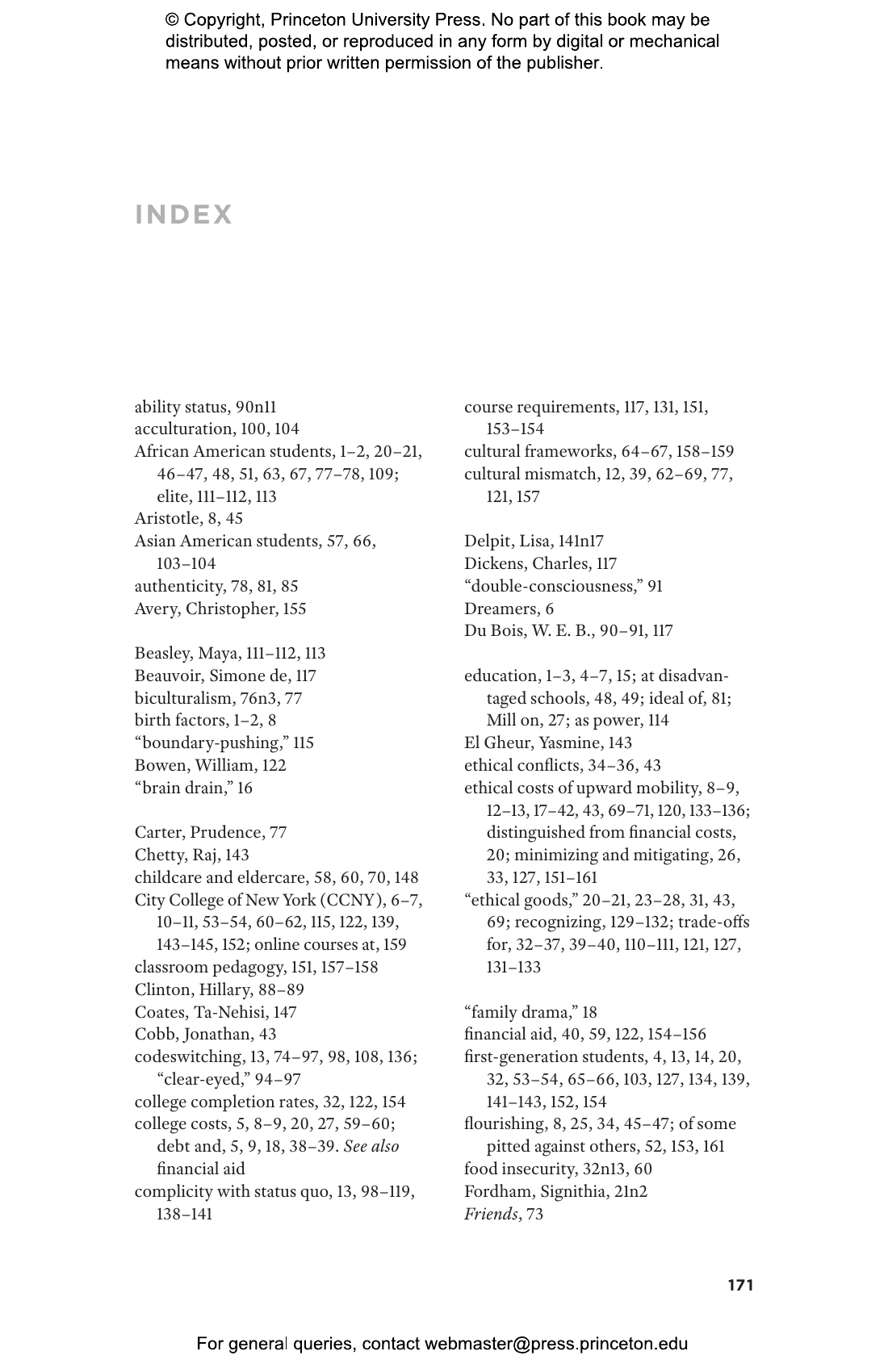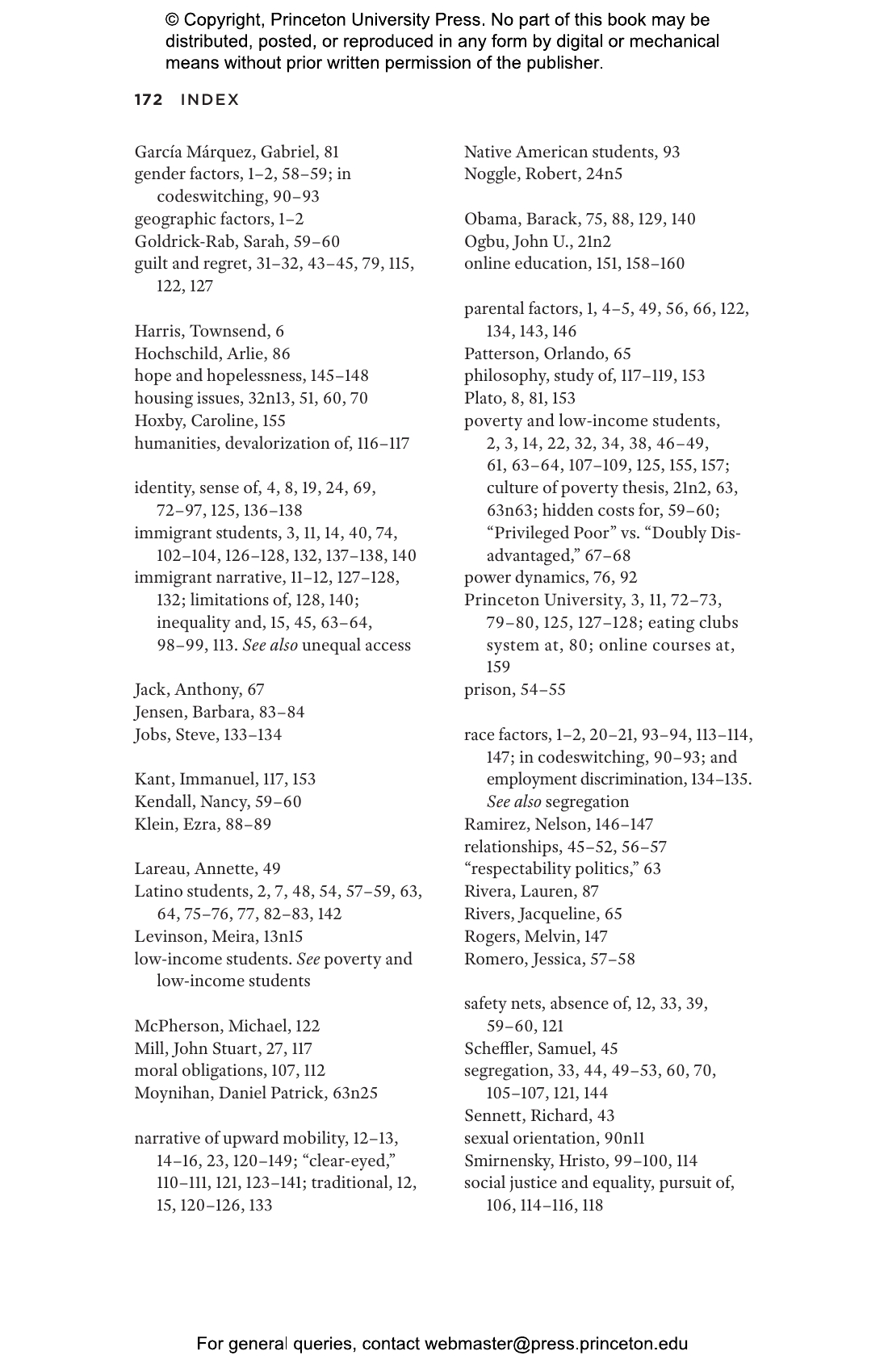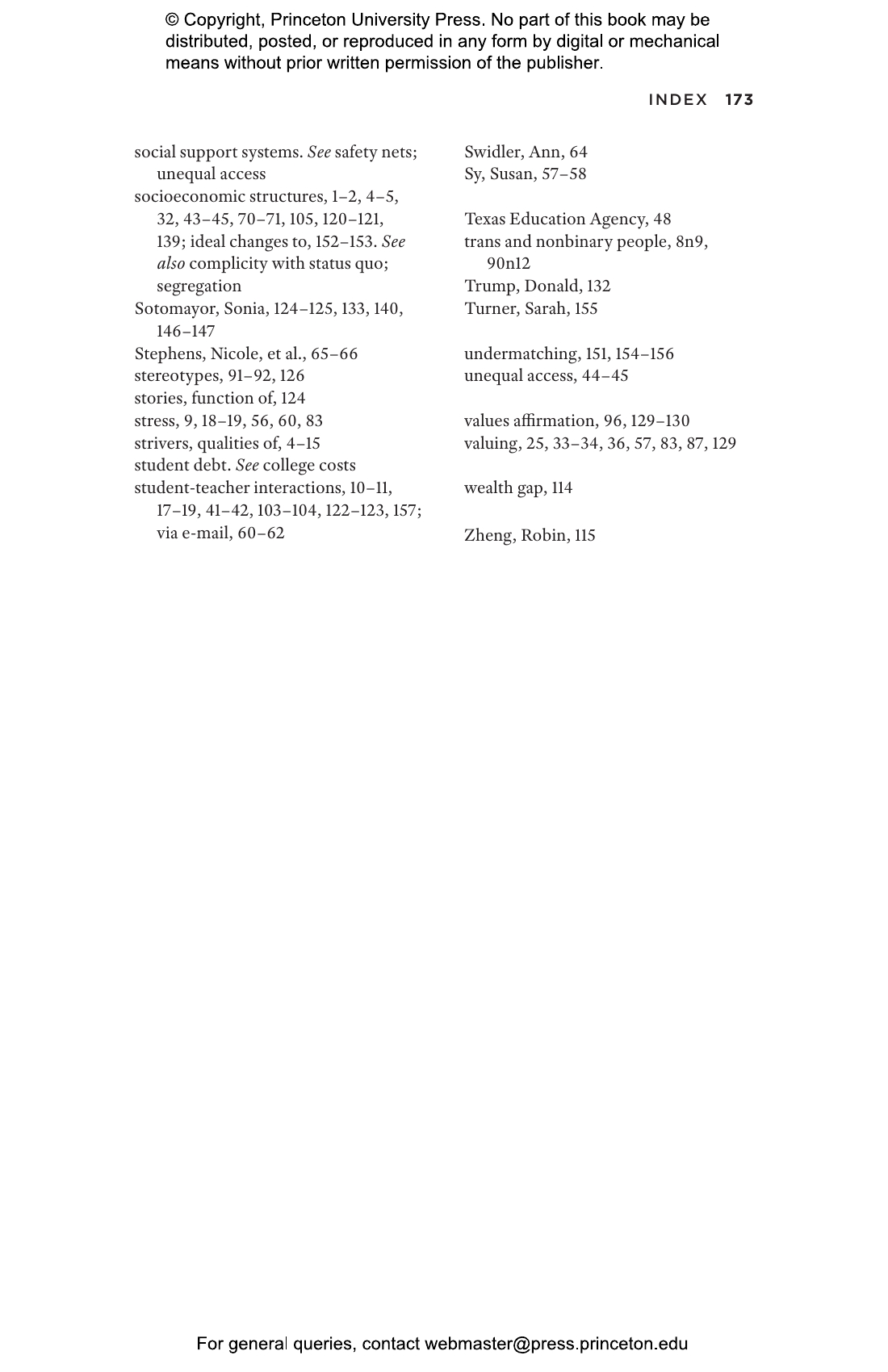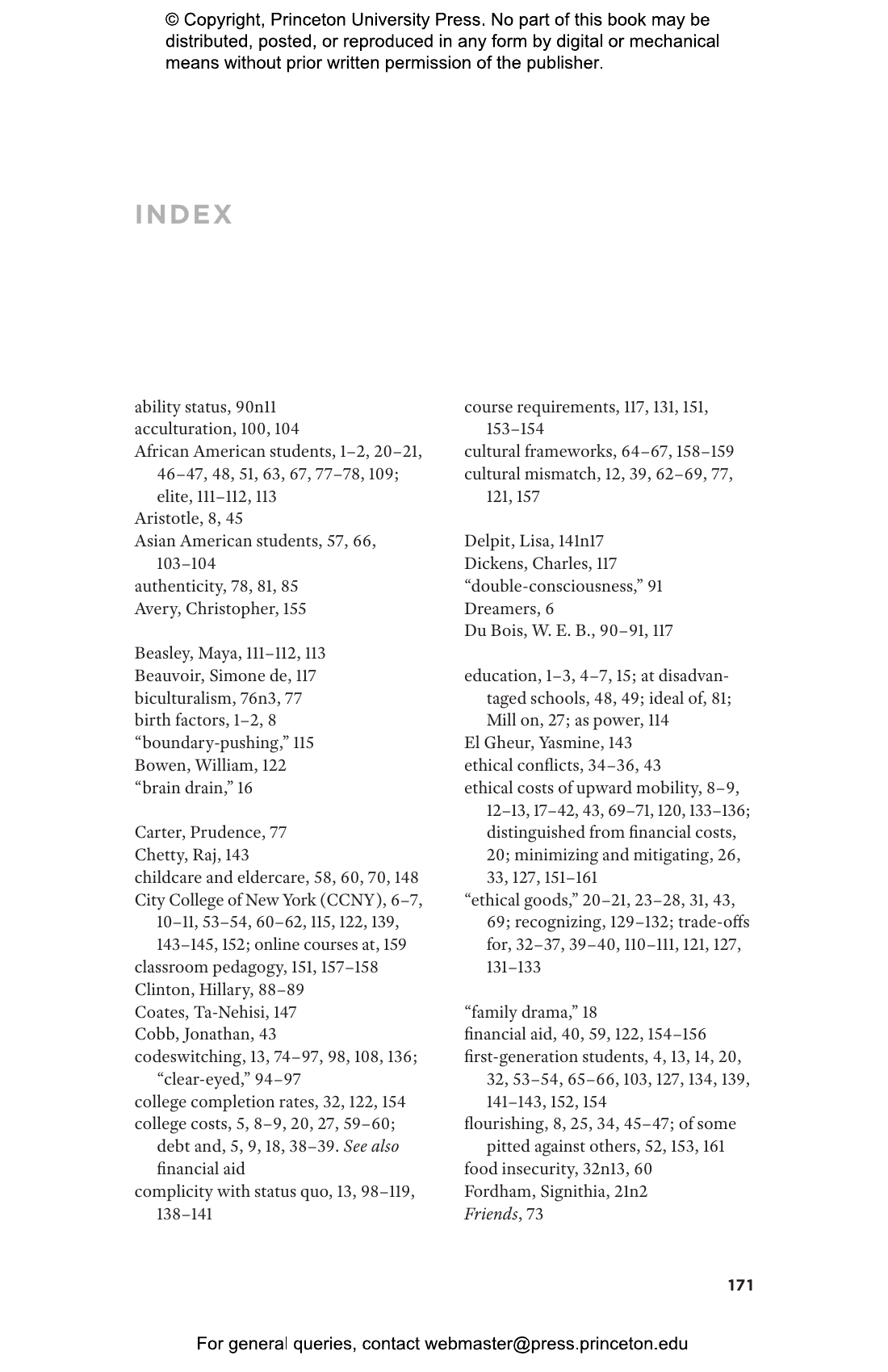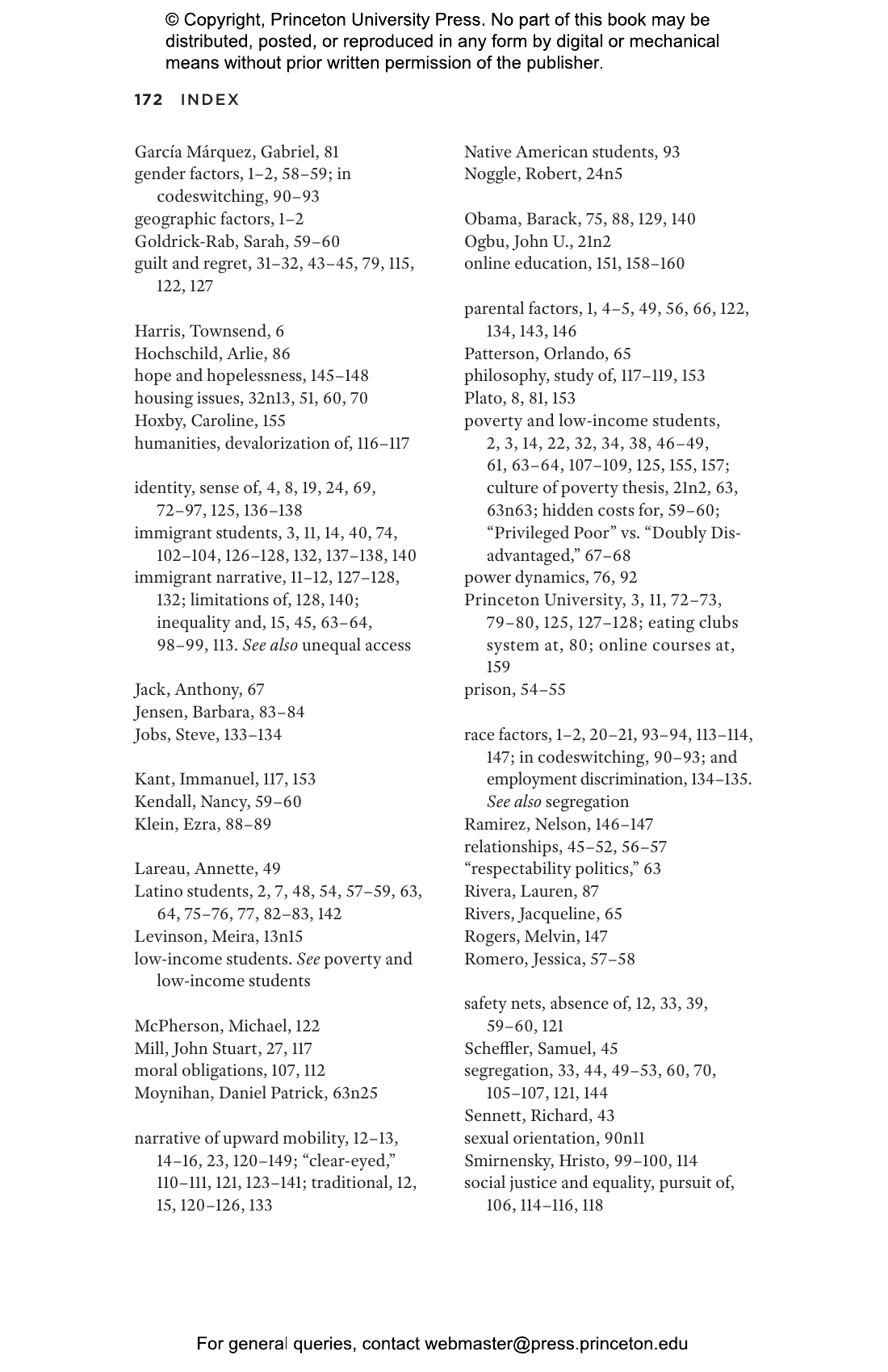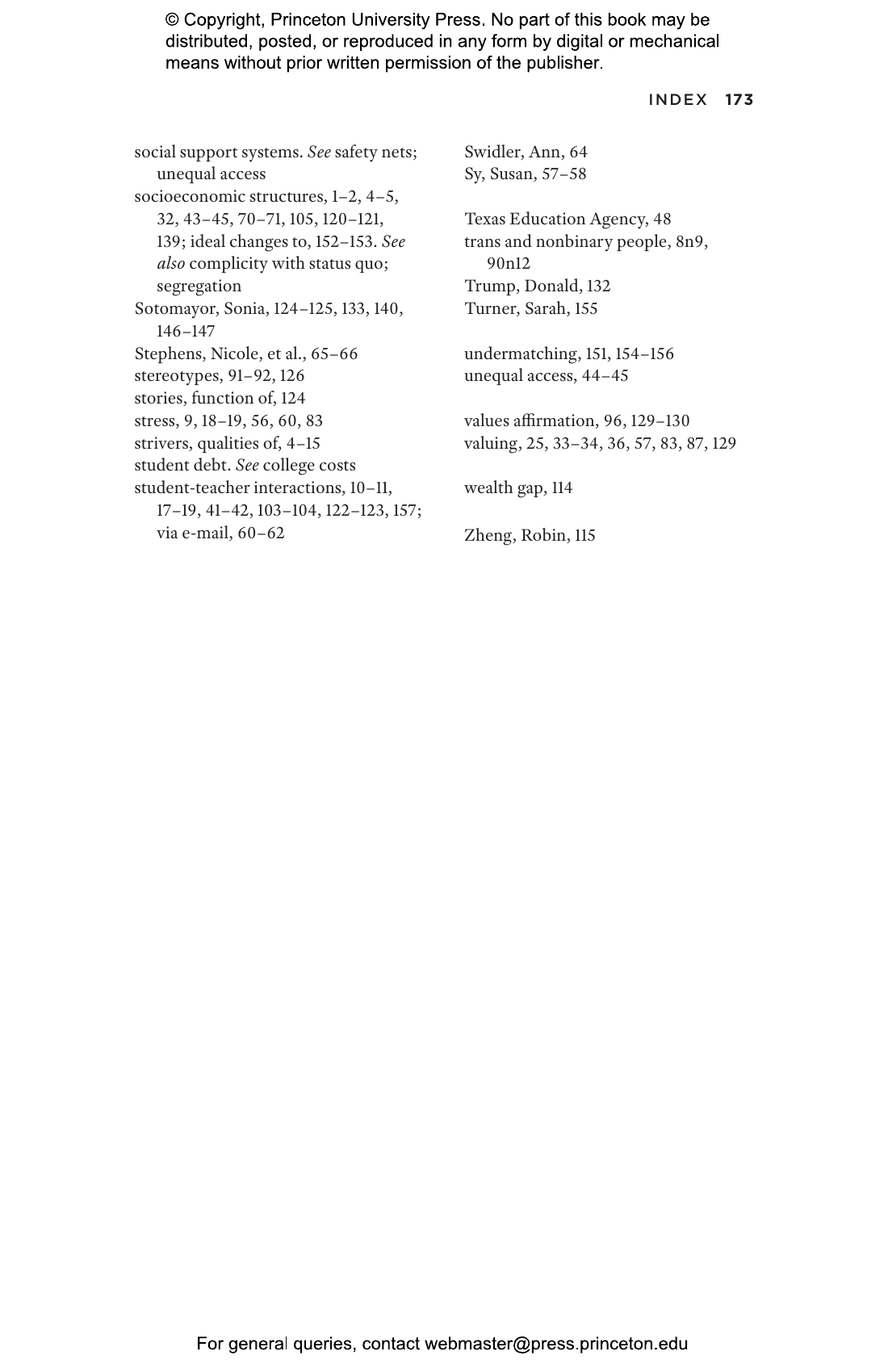Upward mobility through the path of higher education has been an article of faith for generations of working-class, low-income, and immigrant college students. While we know this path usually entails financial sacrifices and hard work, very little attention has been paid to the deep personal compromises such students have to make as they enter worlds vastly different from their own. Measuring the true cost of higher education for those from disadvantaged backgrounds, Moving Up without Losing Your Way looks at the ethical dilemmas of upward mobility—the broken ties with family and friends, the severed connections with former communities, and the loss of identity—faced by students as they strive to earn a successful place in society.
Drawing upon philosophy, social science, personal stories, and interviews, Jennifer Morton reframes the college experience, factoring in not just educational and career opportunities but also essential relationships with family, friends, and community. Finding that student strivers tend to give up the latter for the former, negating their sense of self, Morton seeks to reverse this course. She urges educators to empower students with a new narrative of upward mobility—one that honestly situates ethical costs in historical, social, and economic contexts and that allows students to make informed decisions for themselves.
A powerful work with practical implications, Moving Up without Losing Your Way paves a hopeful road so that students might achieve social mobility while retaining their best selves.
Awards and Recognition
- Winner of the Frederic W. Ness Book Award, Association of American Colleges and Universities
- Winner of the Grawemeyer Award in Education
Jennifer M. Morton is associate professor of philosophy at the City College of New York and the Graduate Center, CUNY and senior fellow at the Center for Ethics and Education at the University of Wisconsin–Madison.
"For those of us who work with strivers. . . . Moving Up Without Losing Your Way provides an empathetic and clear-eyed analysis of the difficult choices they must make, and the costs of those choices to both themselves and their communities."—James M. Lang, Chronicle of Higher Education
"This important and accessible study demonstrates the value of ethical analyses to understand these issues, aimed at strivers, their families, their communities, and the entire higher education community."—Choice
"Morton is not the first person to describe the myths and ordeals of upward mobility. Nor is she the first to call attention to this group of striving students. But where Morton differs—and meaningfully contributes—is in her perspective as a philosopher."—Shaun Ossei-Owusu, Public Books
"Morton makes her main argument through an astute and very accessible philosophical analysis. . . . Morton’s book is valuable because it not only focuses on the ethical costs of social mobility but also hints at solutions."—Helen De Cruz, The Philosphers’ Magazine
"A good guide to a road not yet well-enough traveled but increasingly important if higher education is to better serve more of the students coming its way."—Mary Taylor Huber, Change: The Magazine of Higher Learning
"Compelling and momentous. . . . Morton’s book occasions a critical reflection for strivers, educators, administrators in higher education, and for anyone who wishes to better understand and support strivers they know."—Vikramaditya Joshi, Studies in Philosophy and Education
"What are the ethical costs borne by first-generation students and their families and communities? Moving Up without Losing Your Way investigates the burden that first-generation, low-income, and immigrant students carry when they strive to achieve upward mobility through attending college. This book reshapes the conversation about upward mobility, shifting our focus from the opportunities embedded in the current social structure to the price paid by those aiming to climb it."—Sigal Ben-Porath, University of Pennsylvania
"Moving Up without Losing Your Way compellingly contends that conventional discourse about the socioeconomic mobility of college students from working-class, low-income, and first-generation backgrounds is fundamentally flawed. Showing how the process of mobility can be detrimental to students, this immensely readable book makes important arguments about the nature of power and structure in American society."—Elizabeth M. Lee, author of Class and Campus Life
"Moving Up without Losing Your Way is a subtle philosophical exploration of the underappreciated costs involved in social mobility. This book is simultaneously a major contribution to the philosophical literature about higher education and essential reading for all college leaders, administrators, and teachers."—Harry Brighouse, coauthor of Educational Goods
